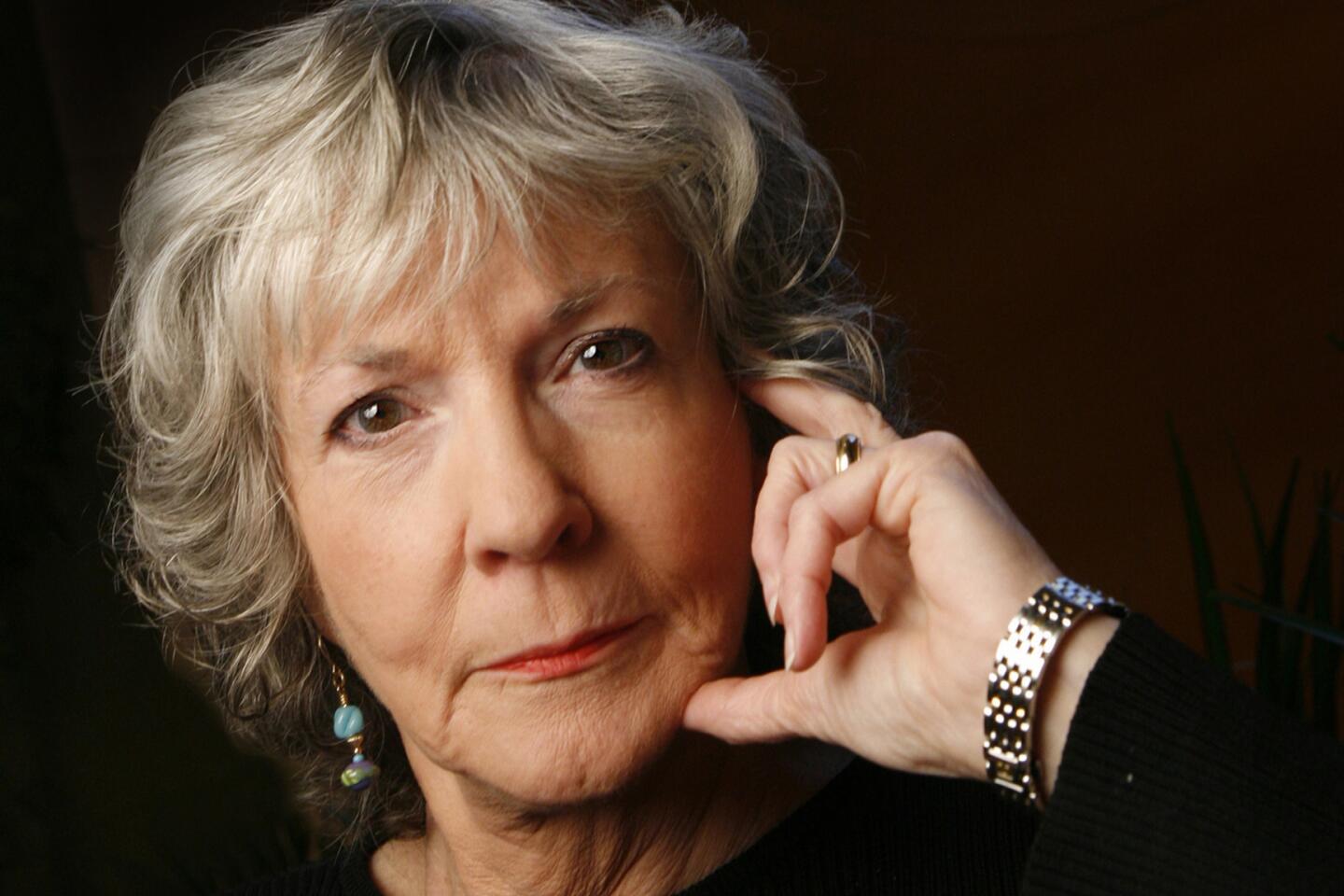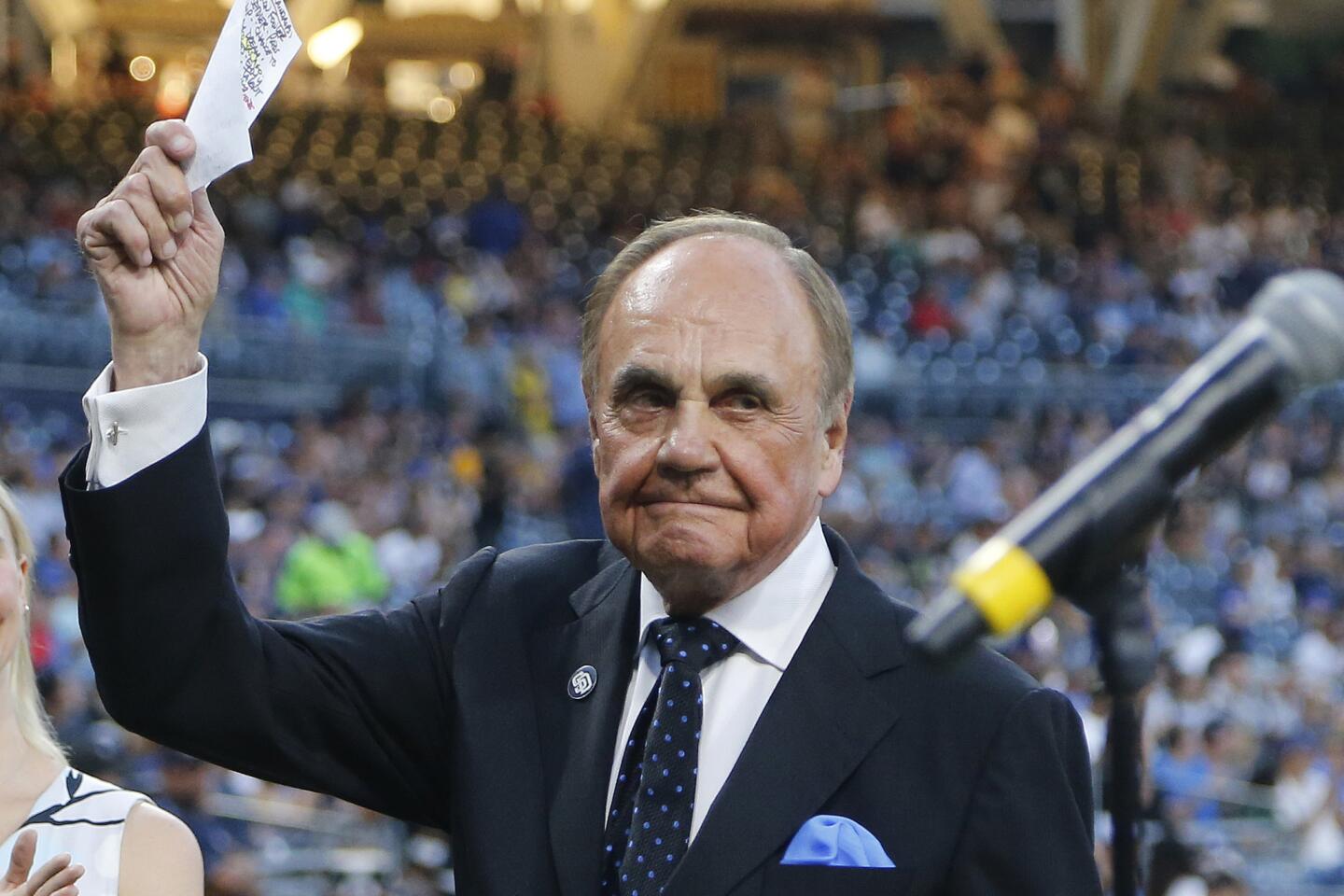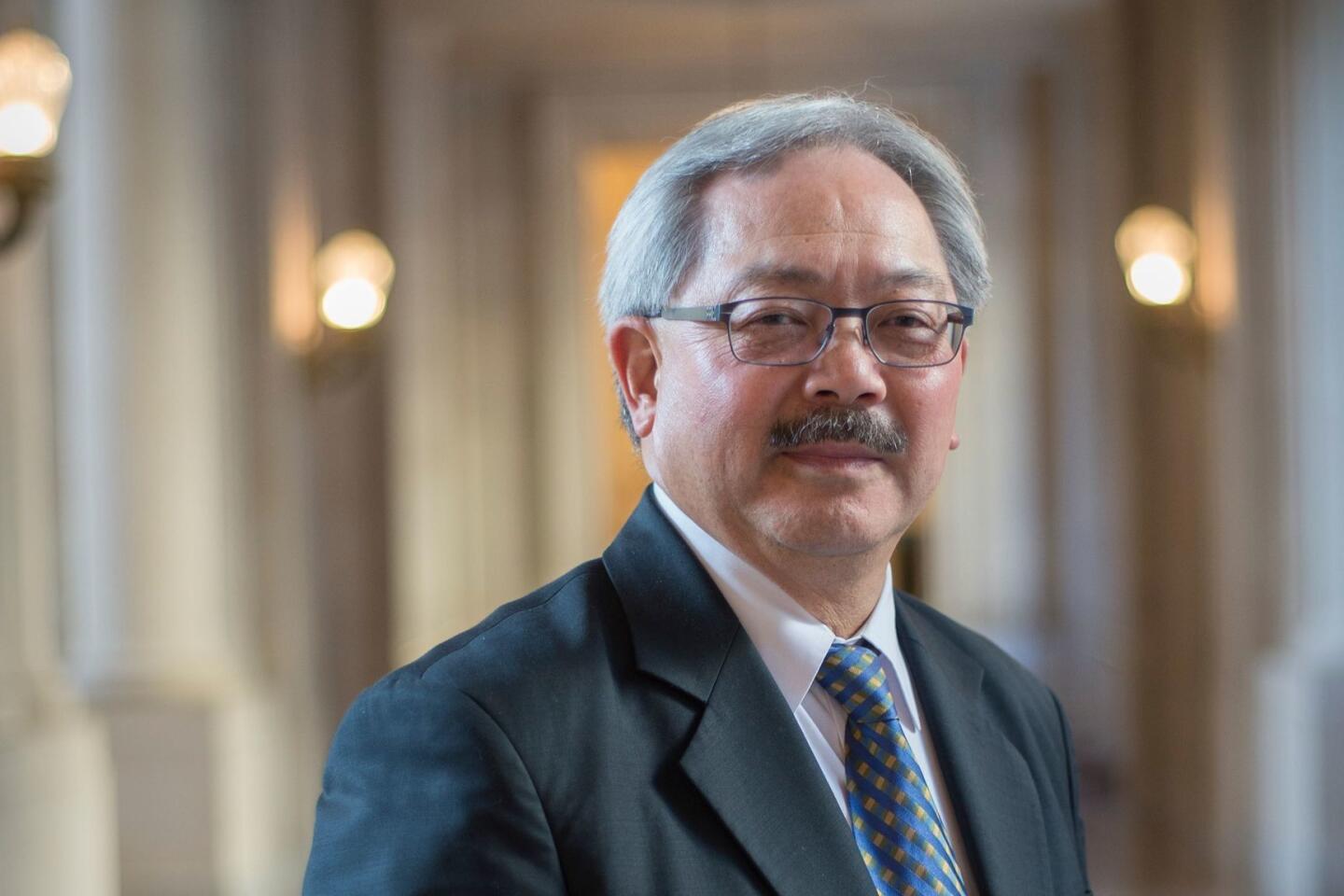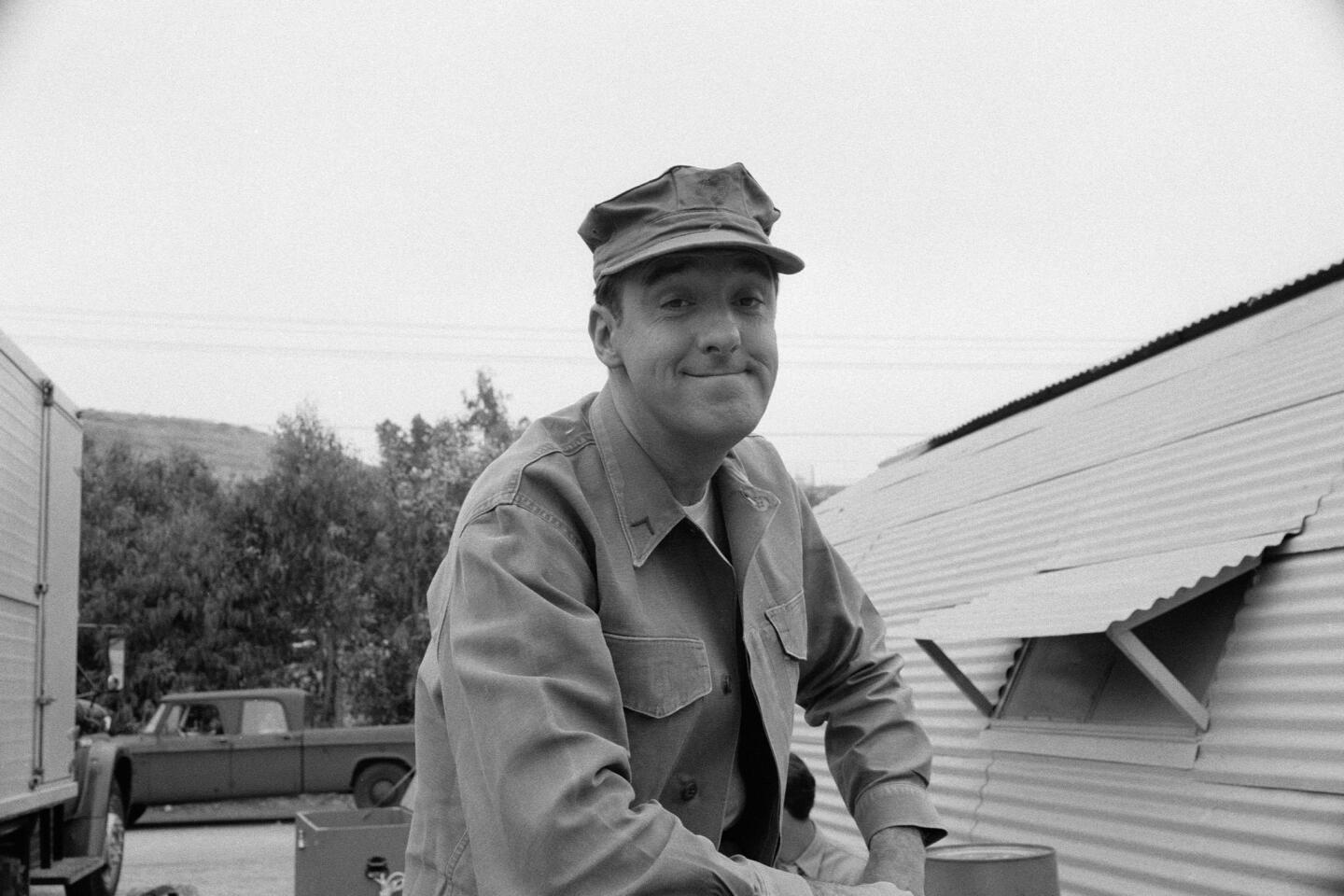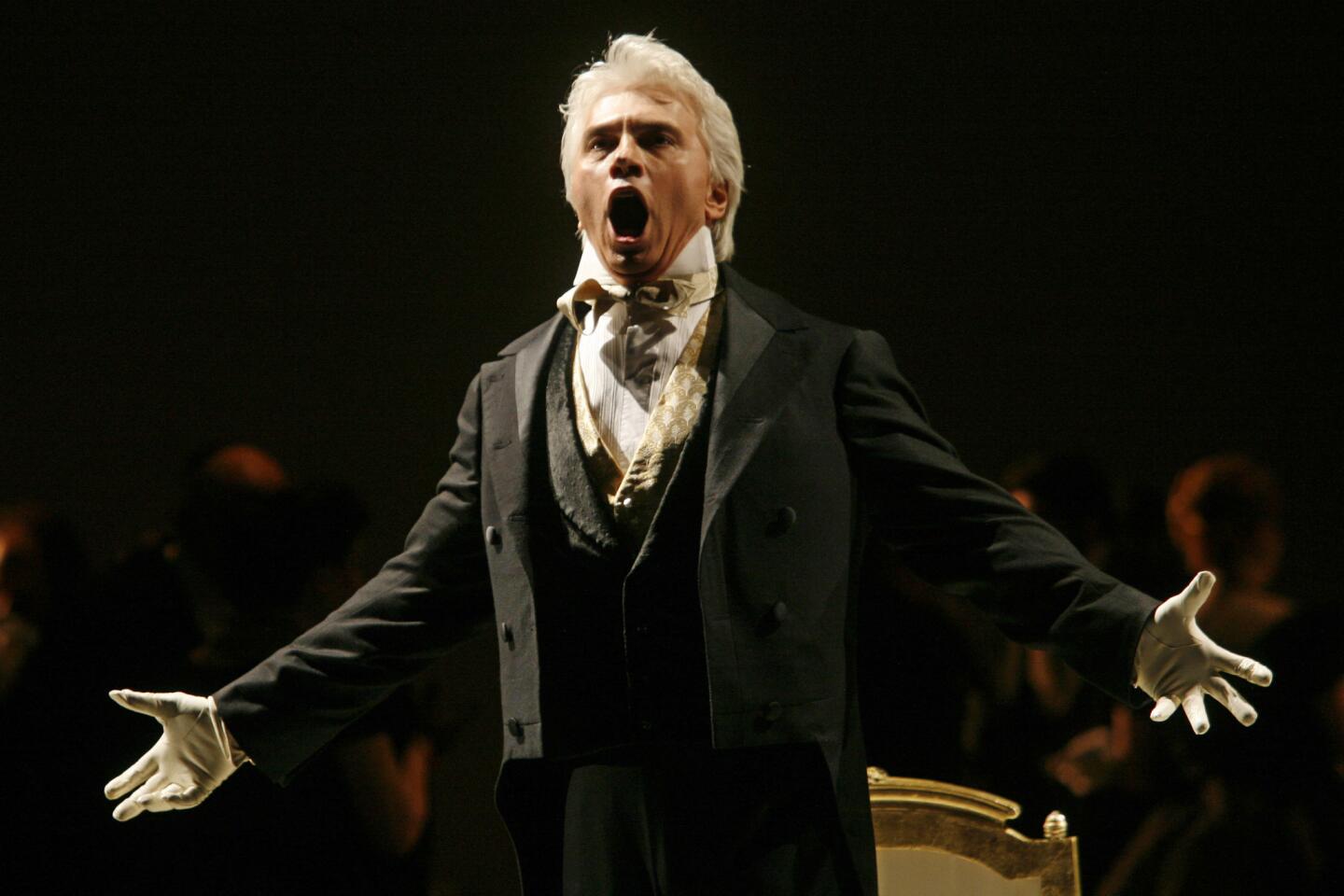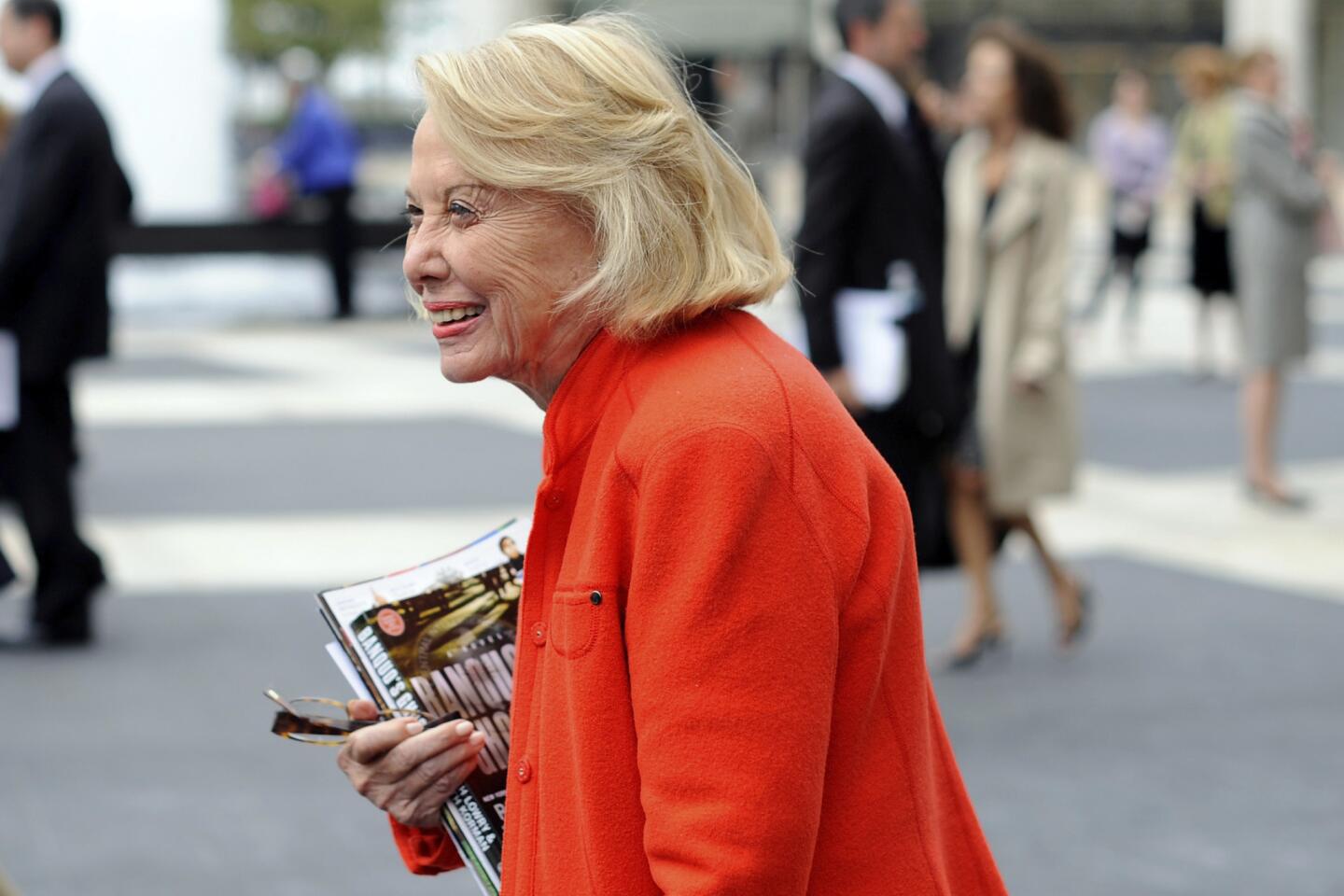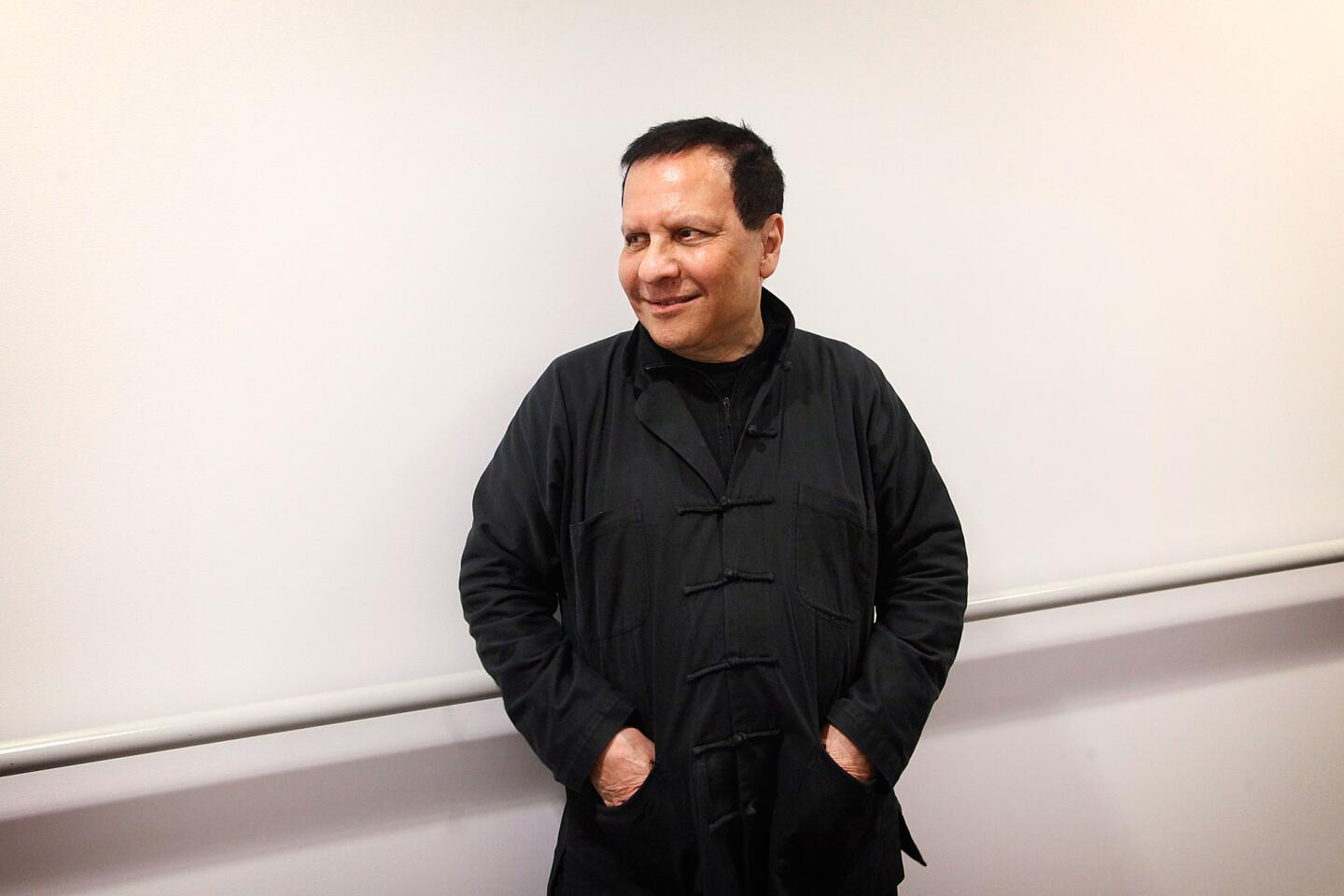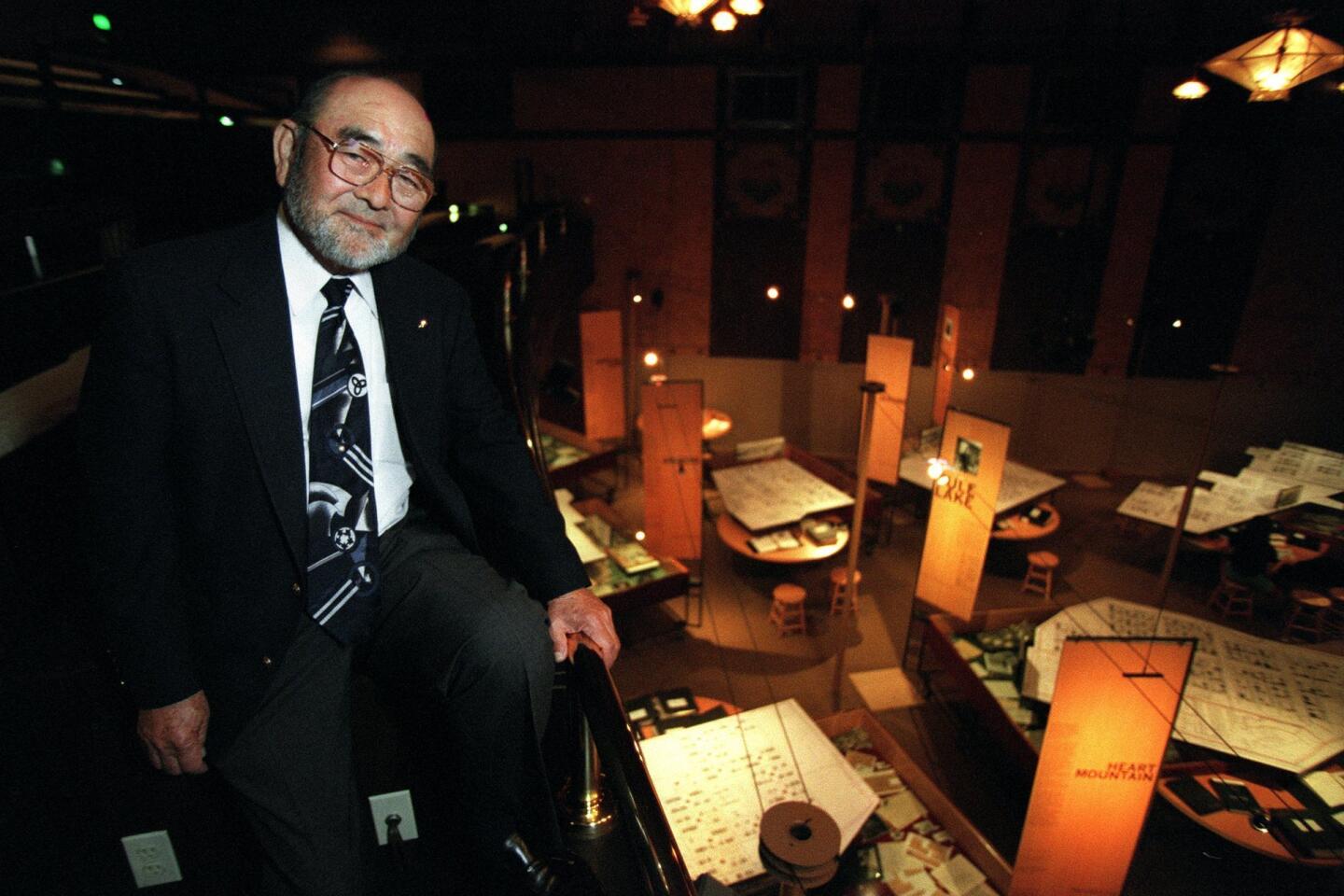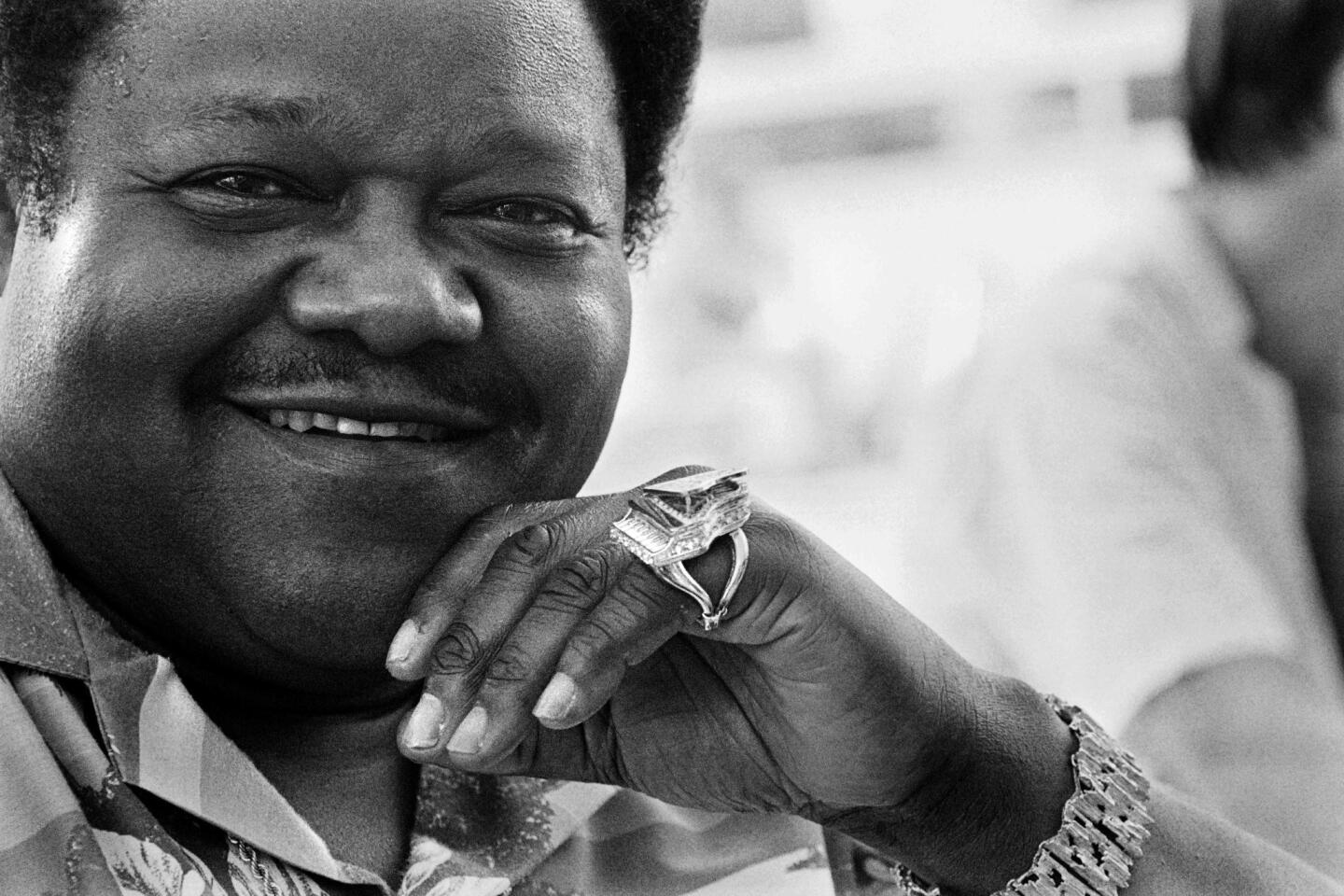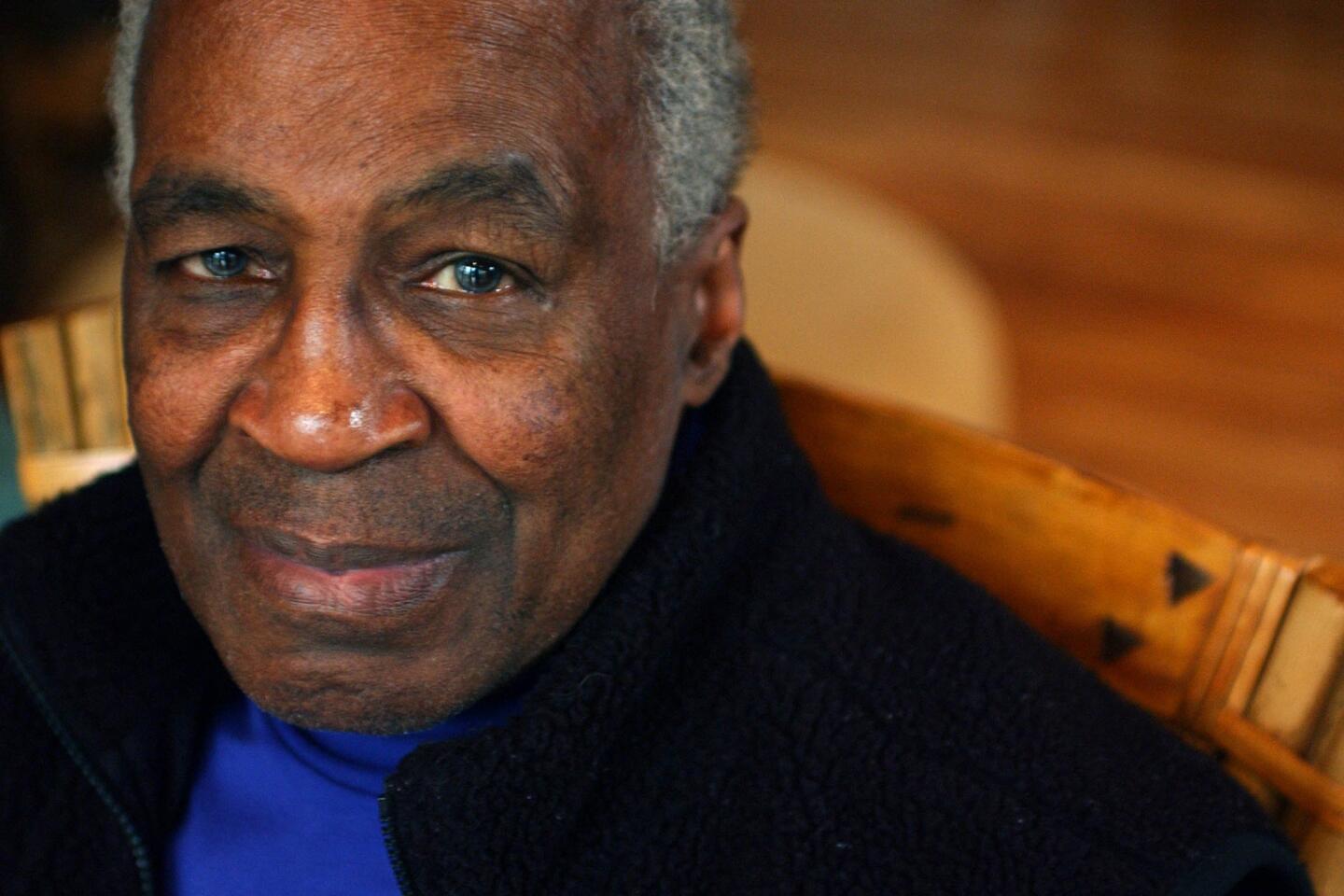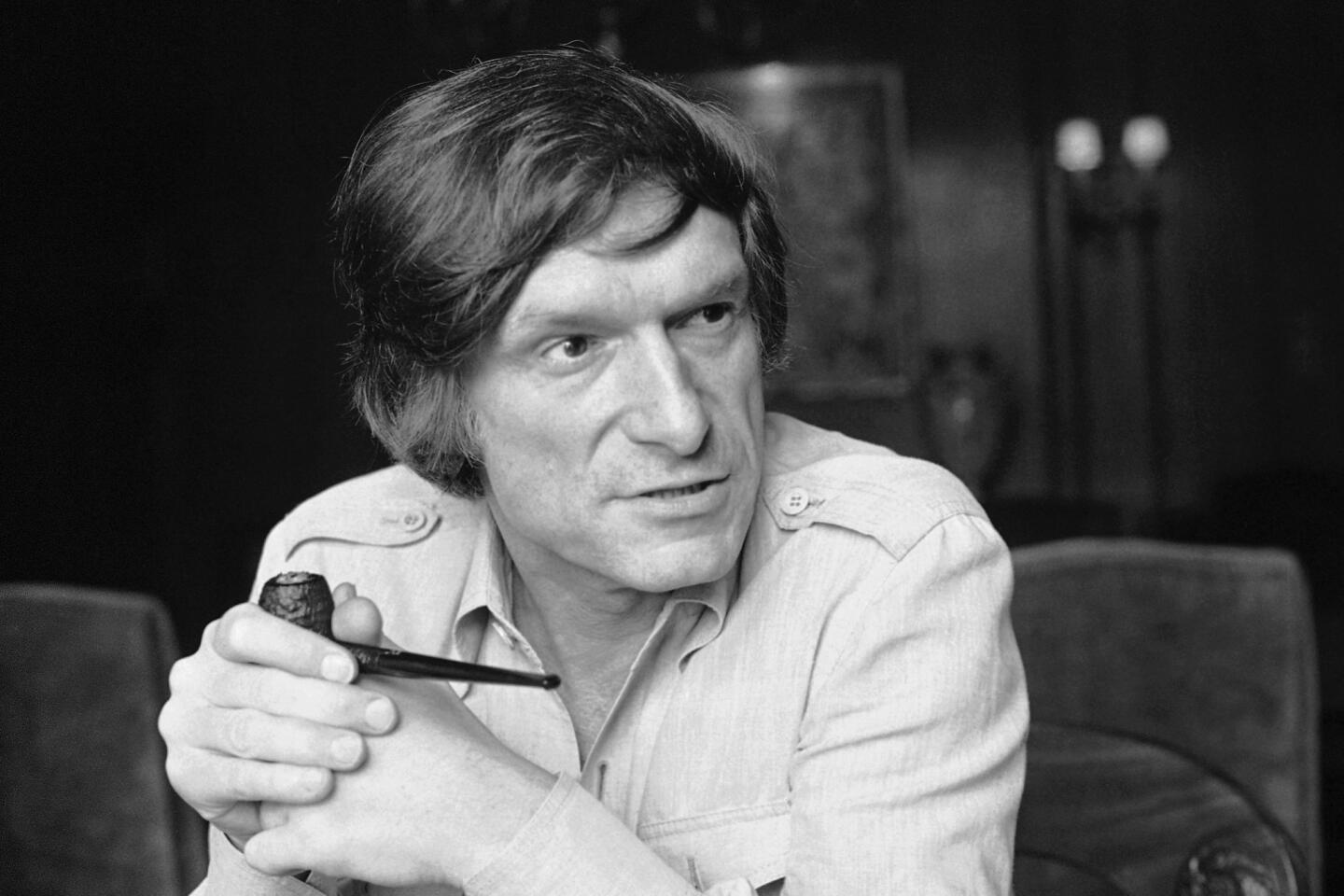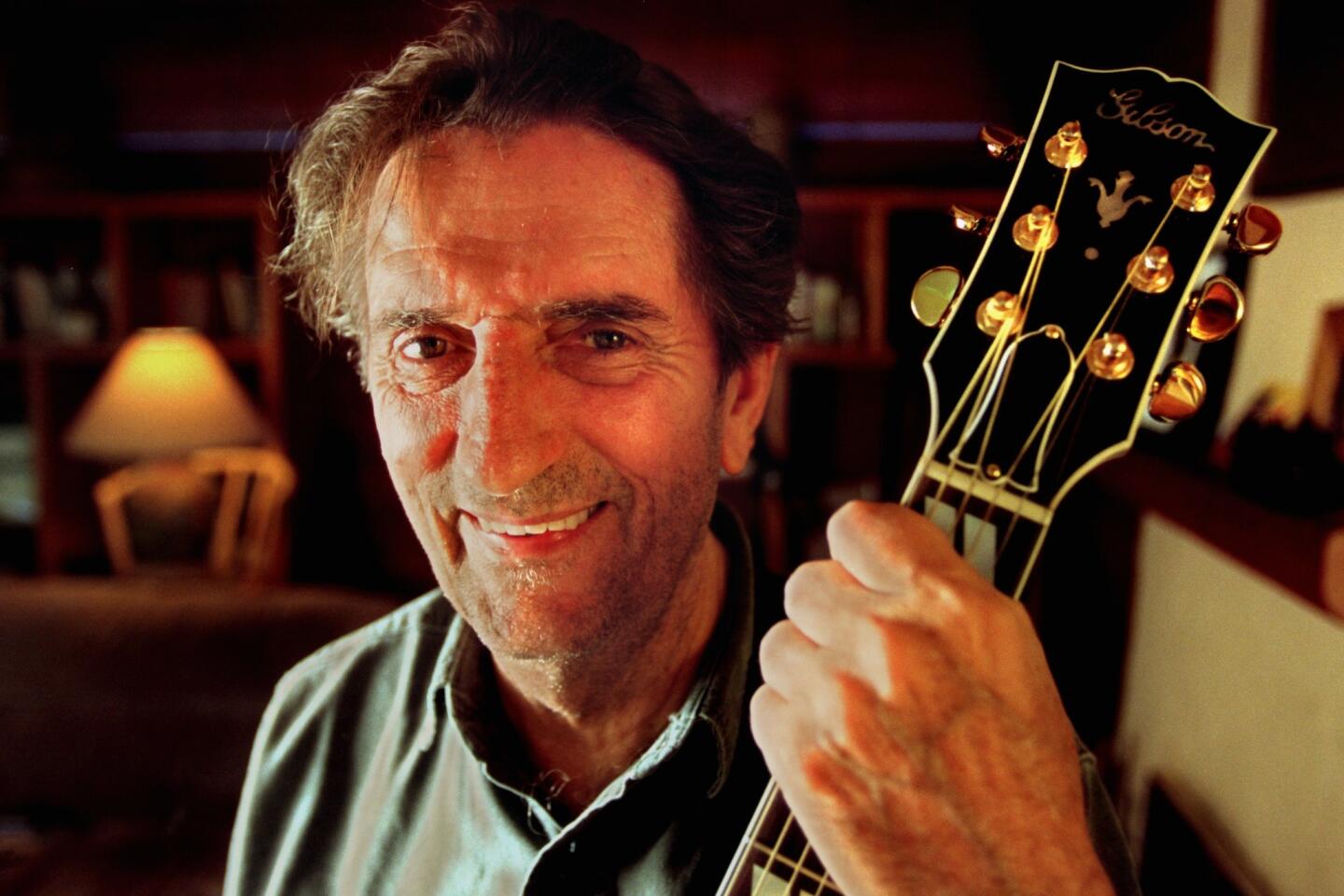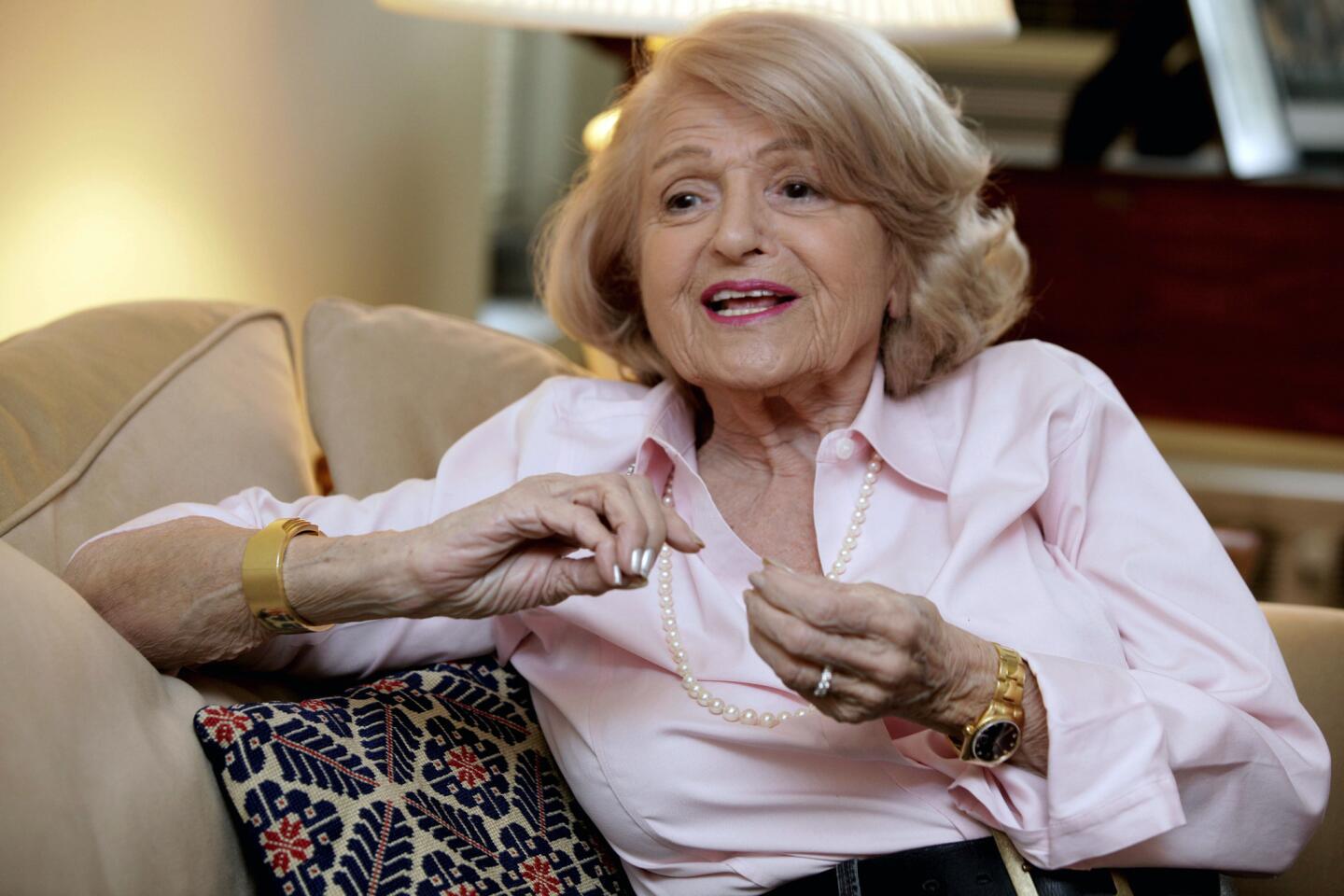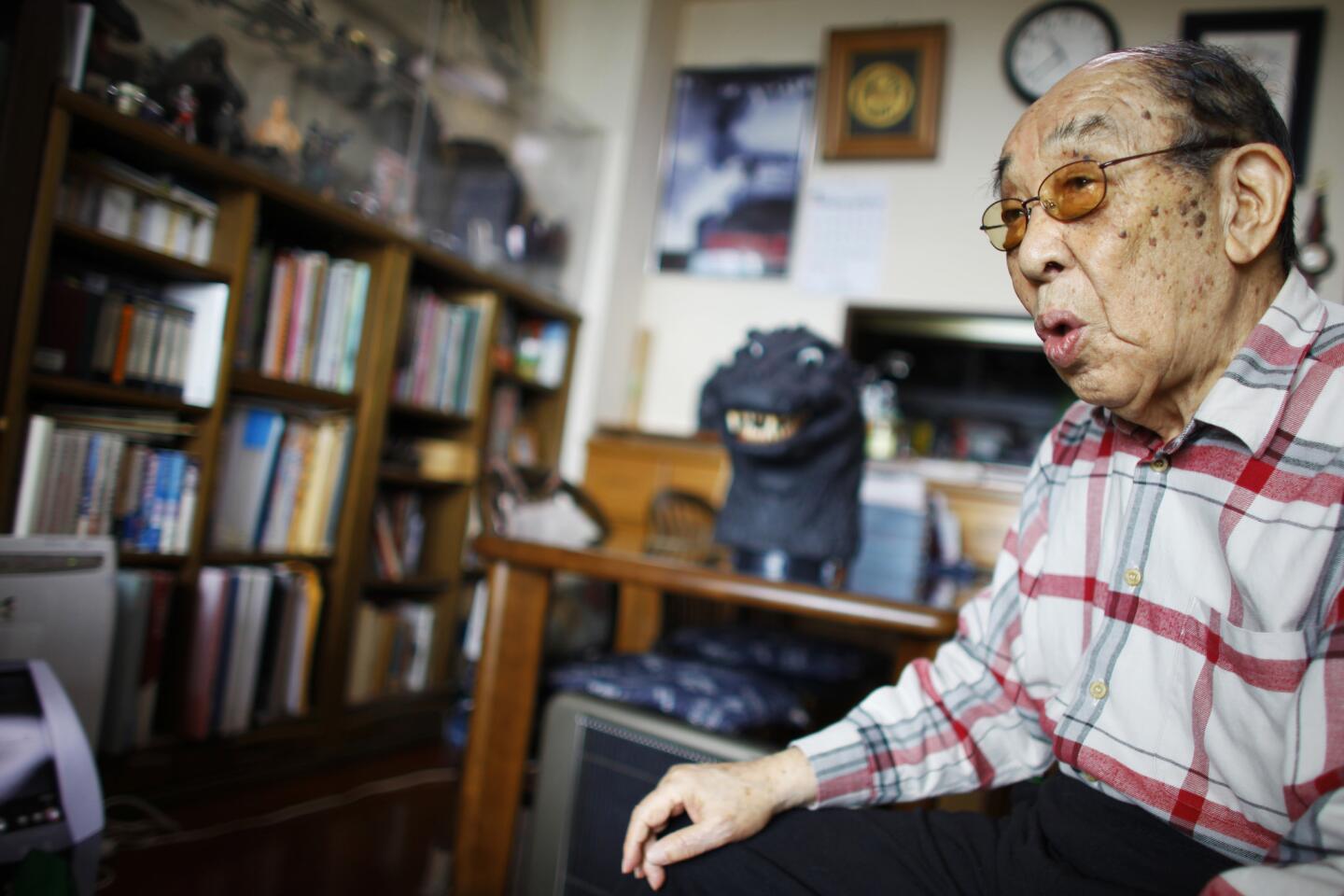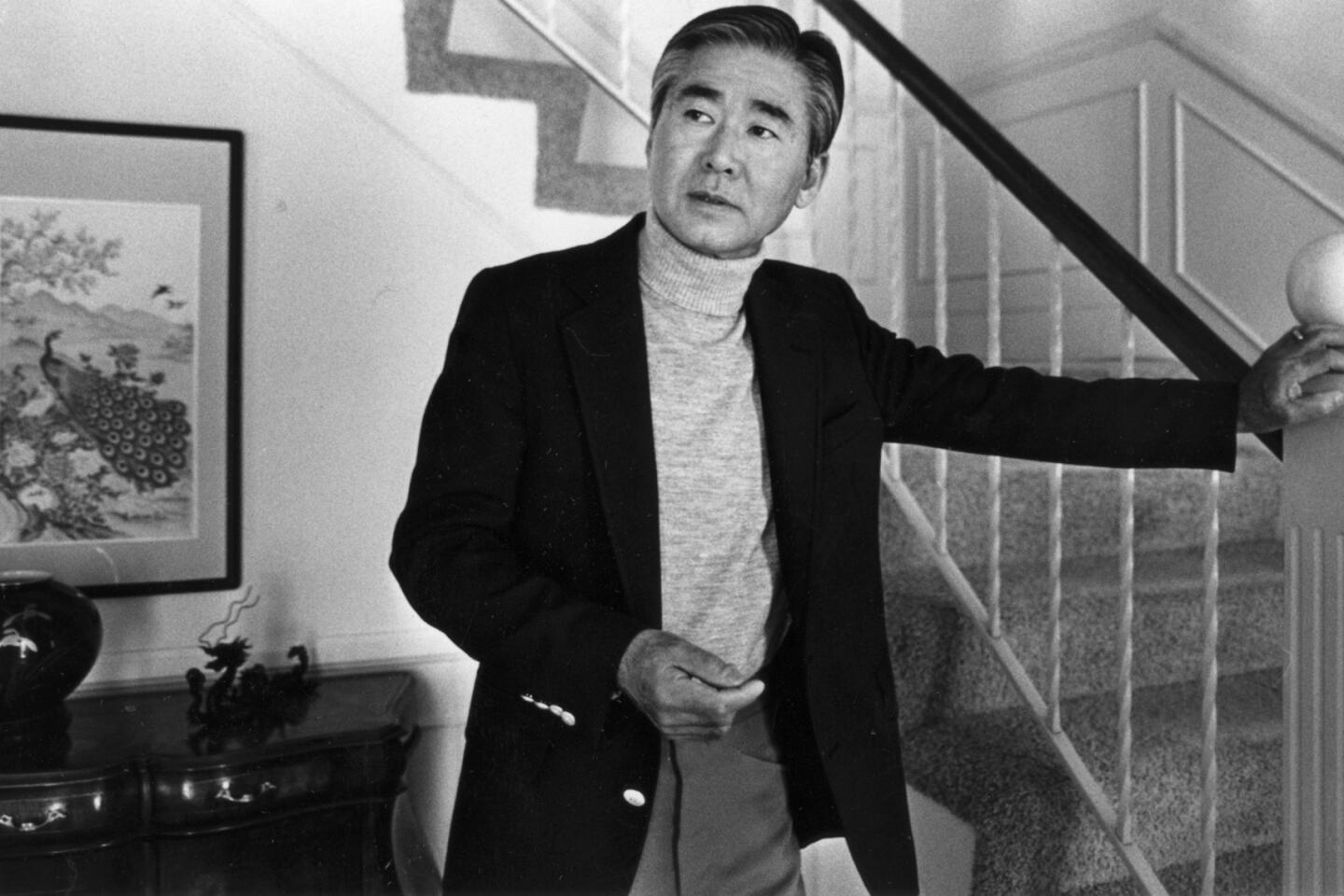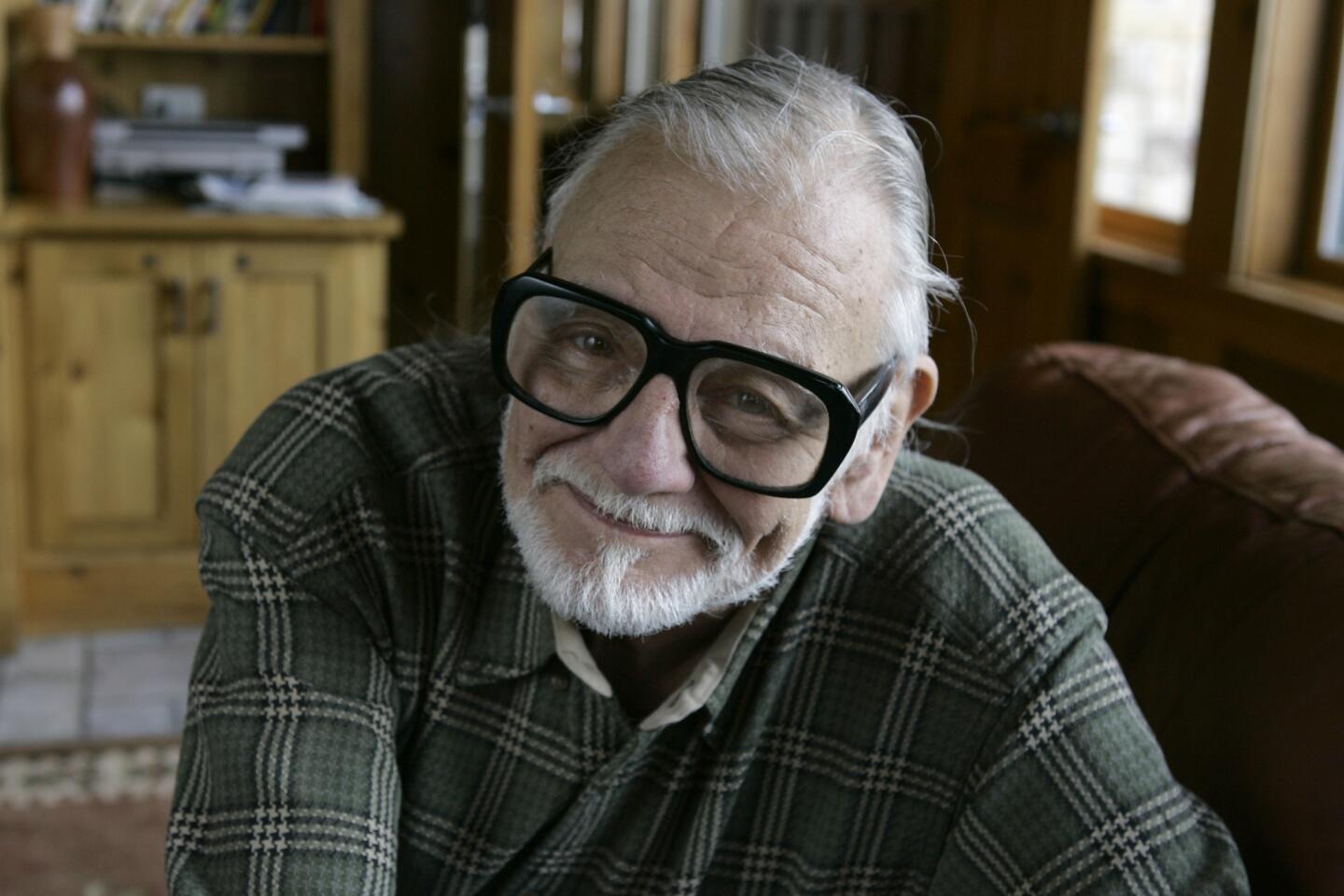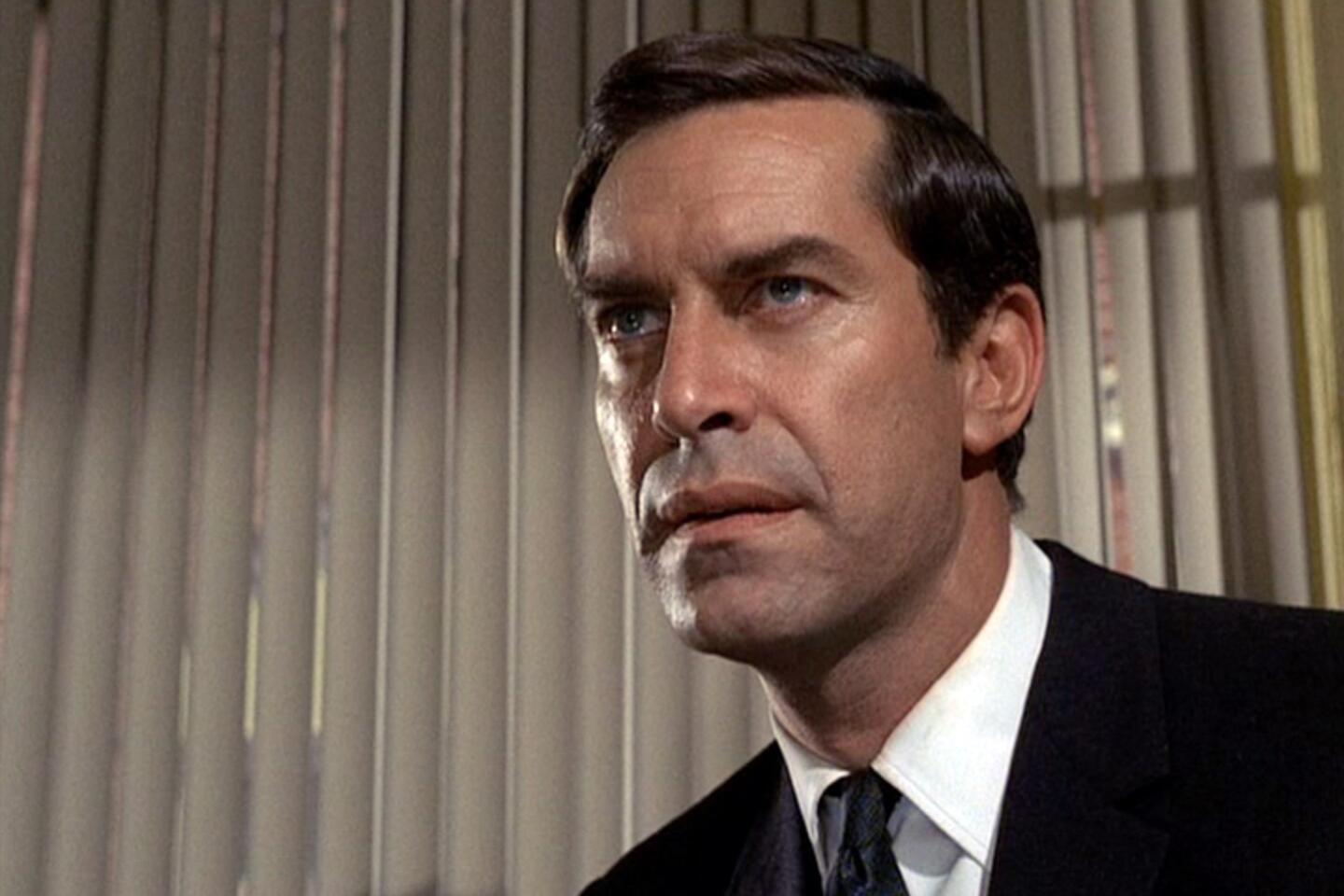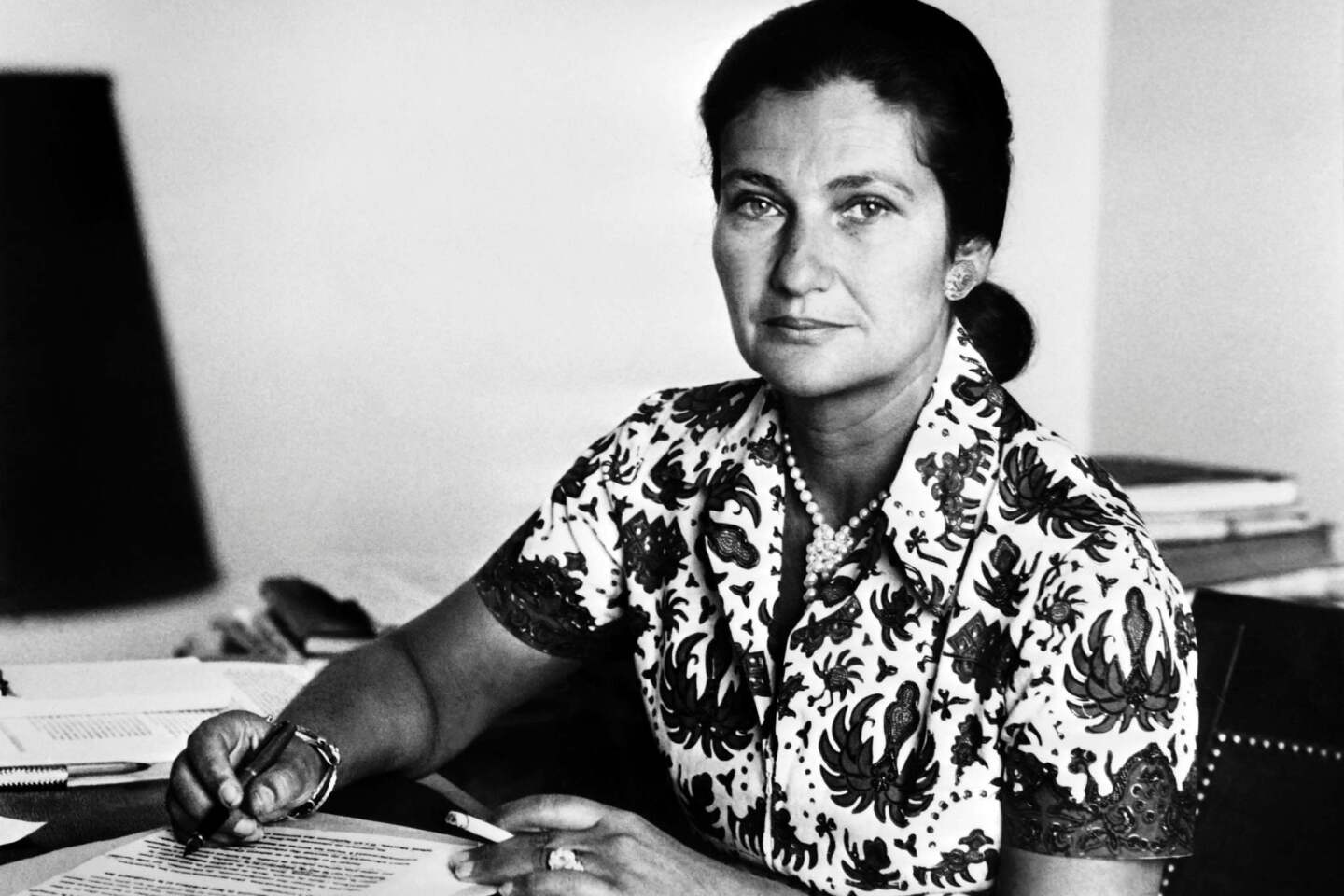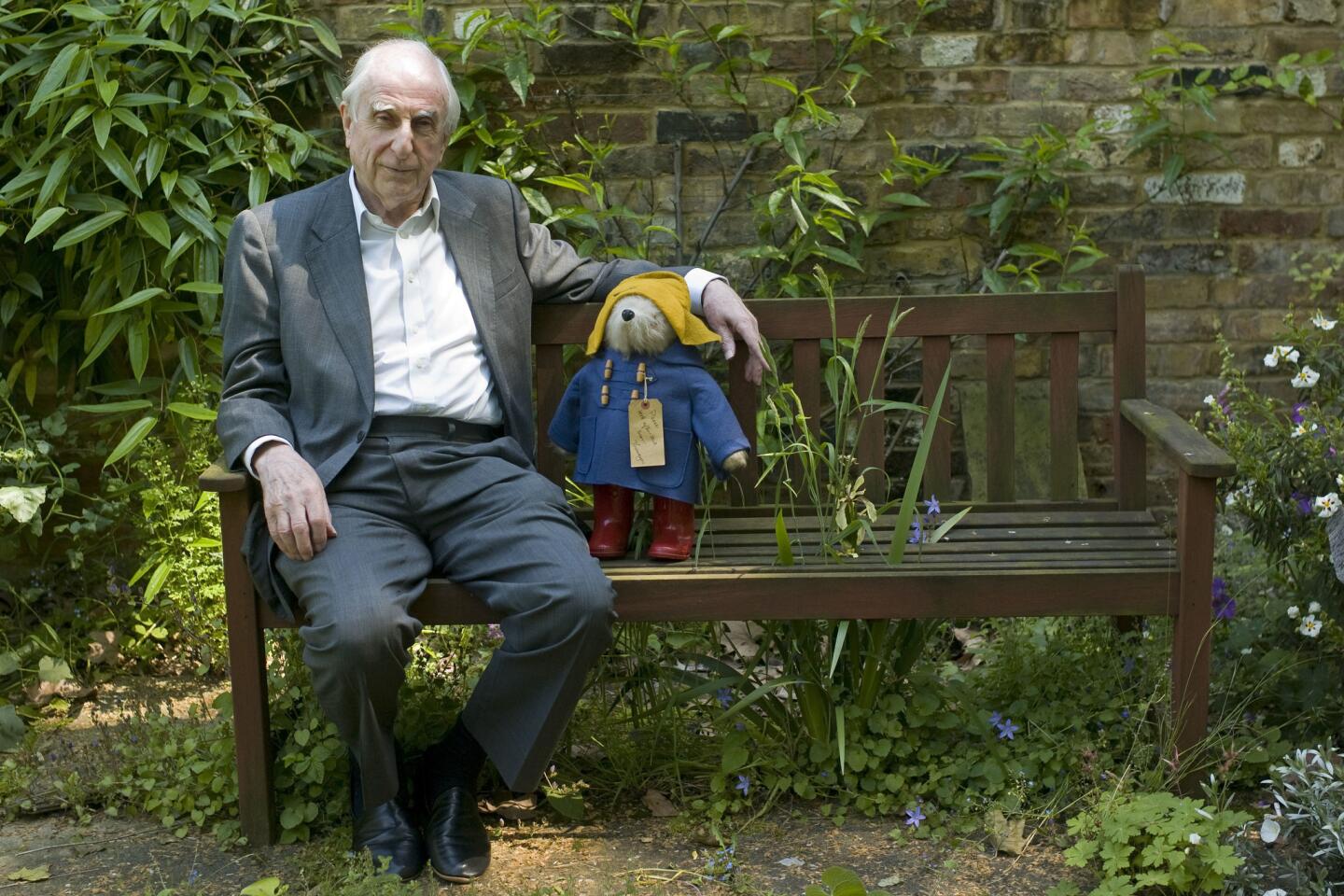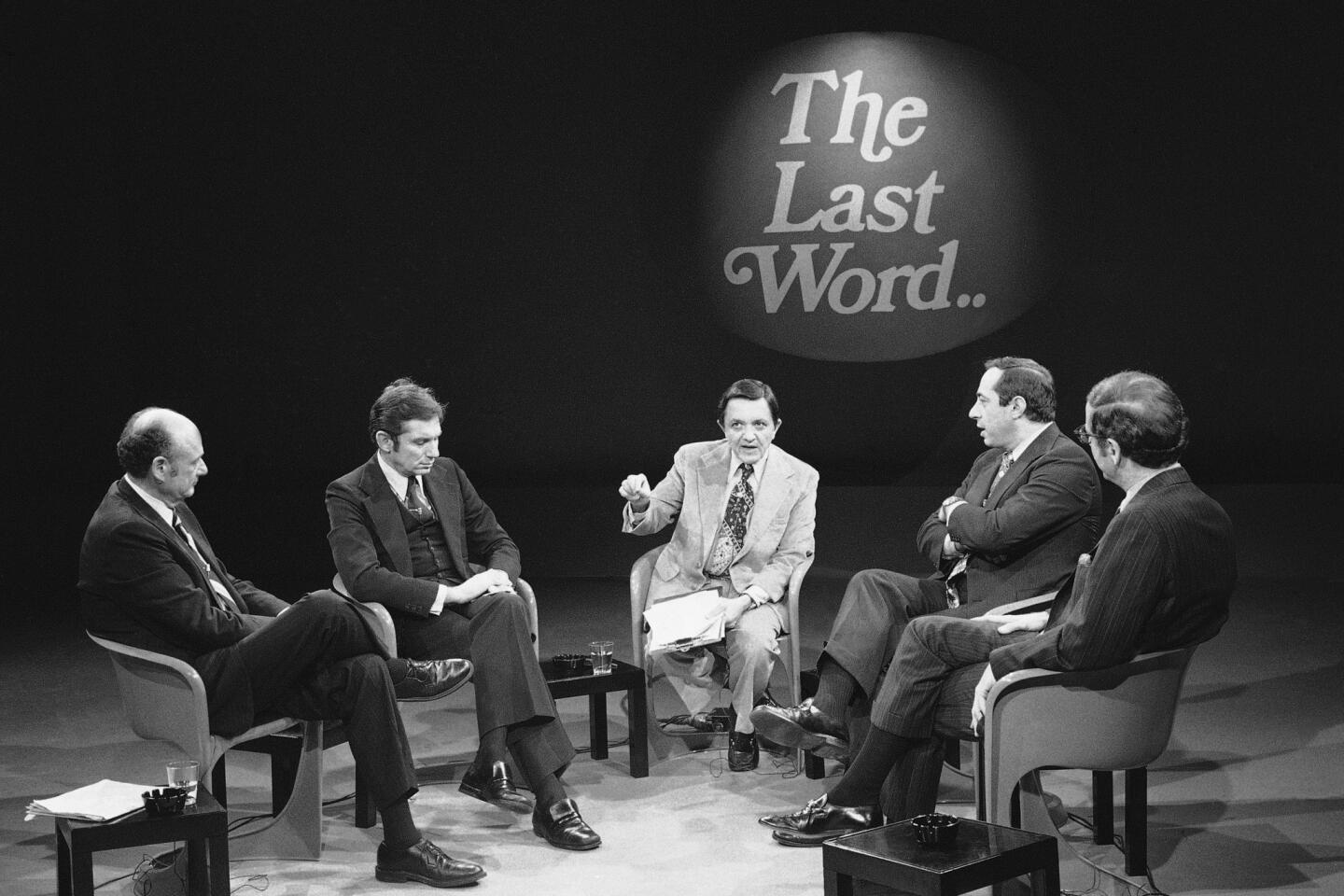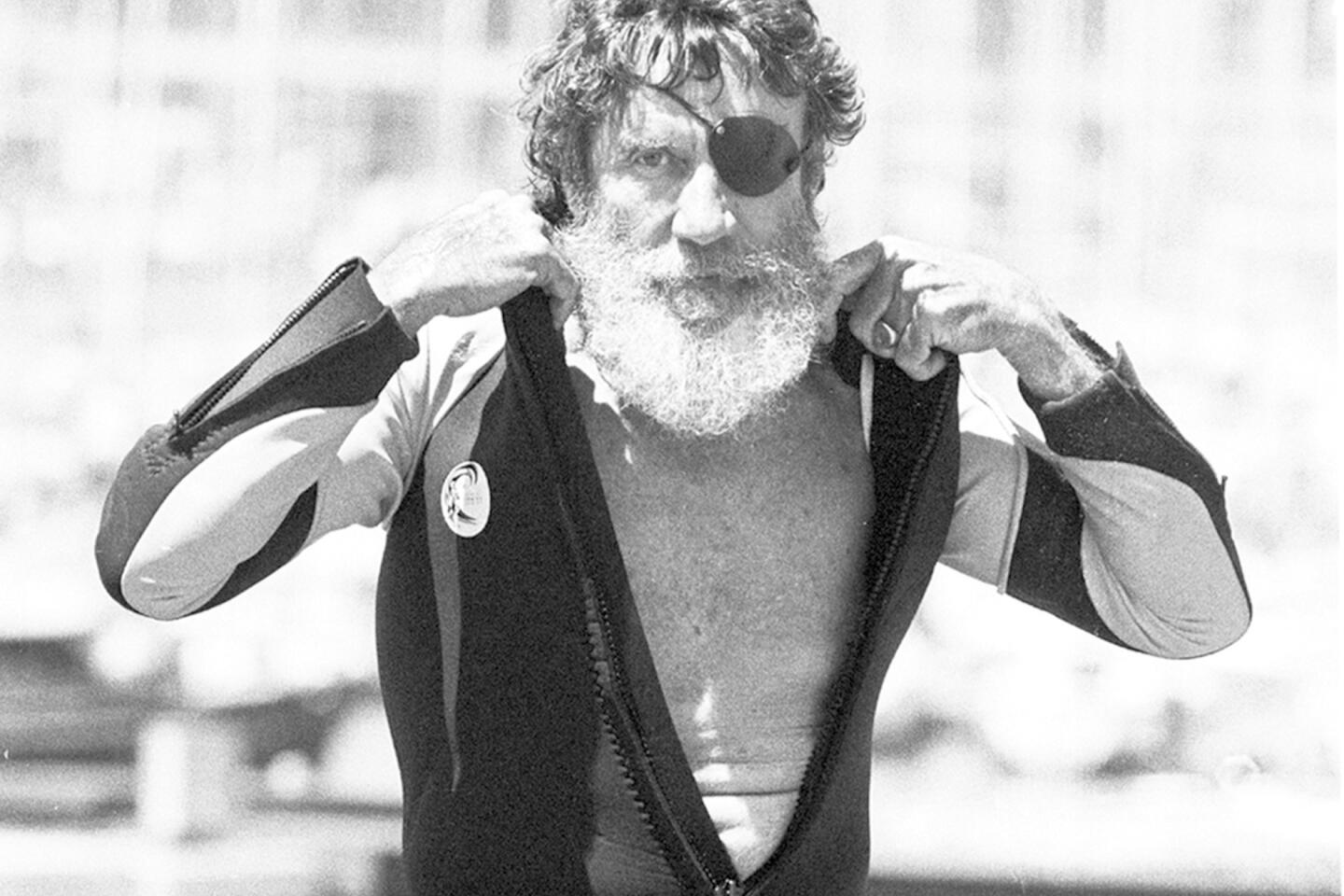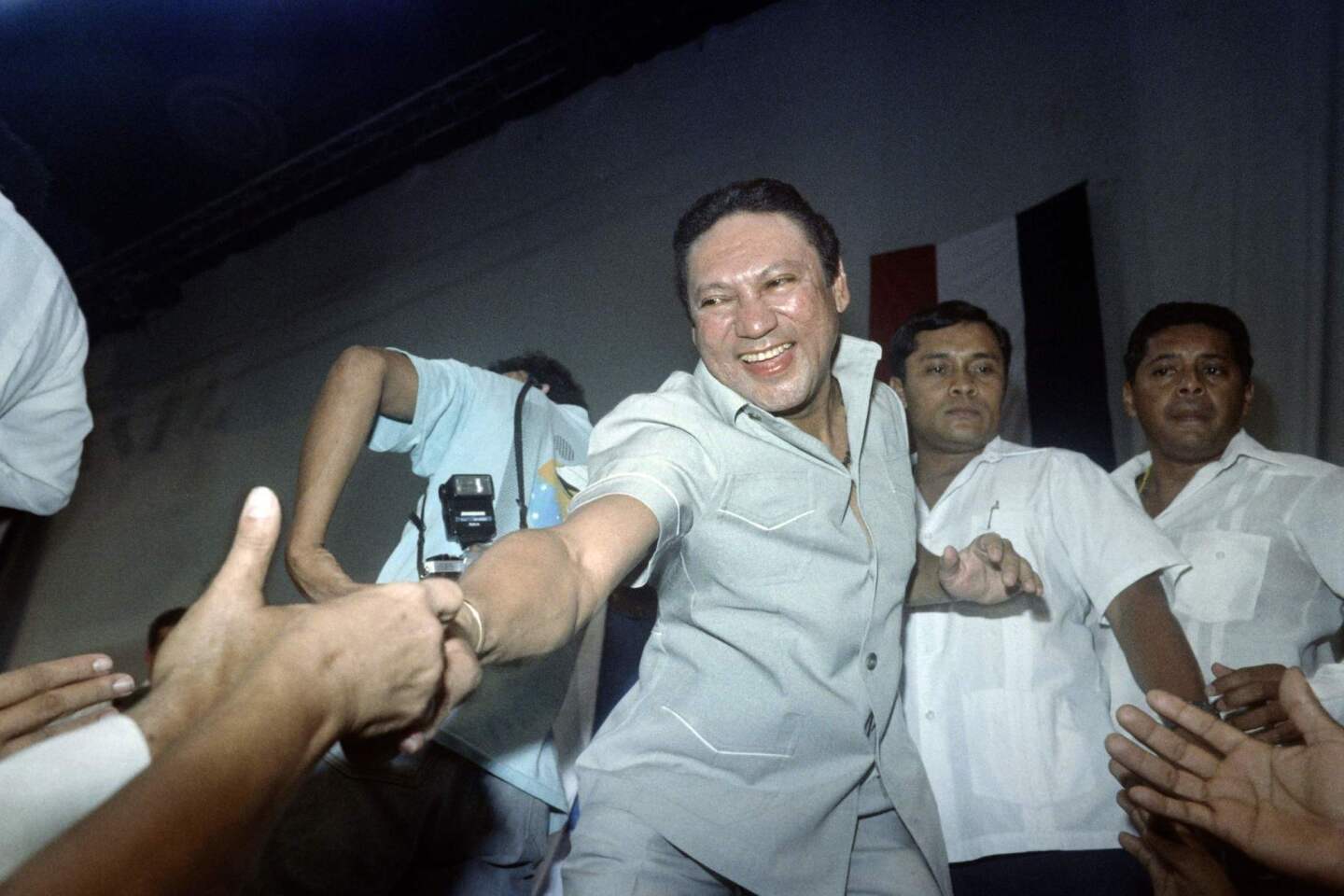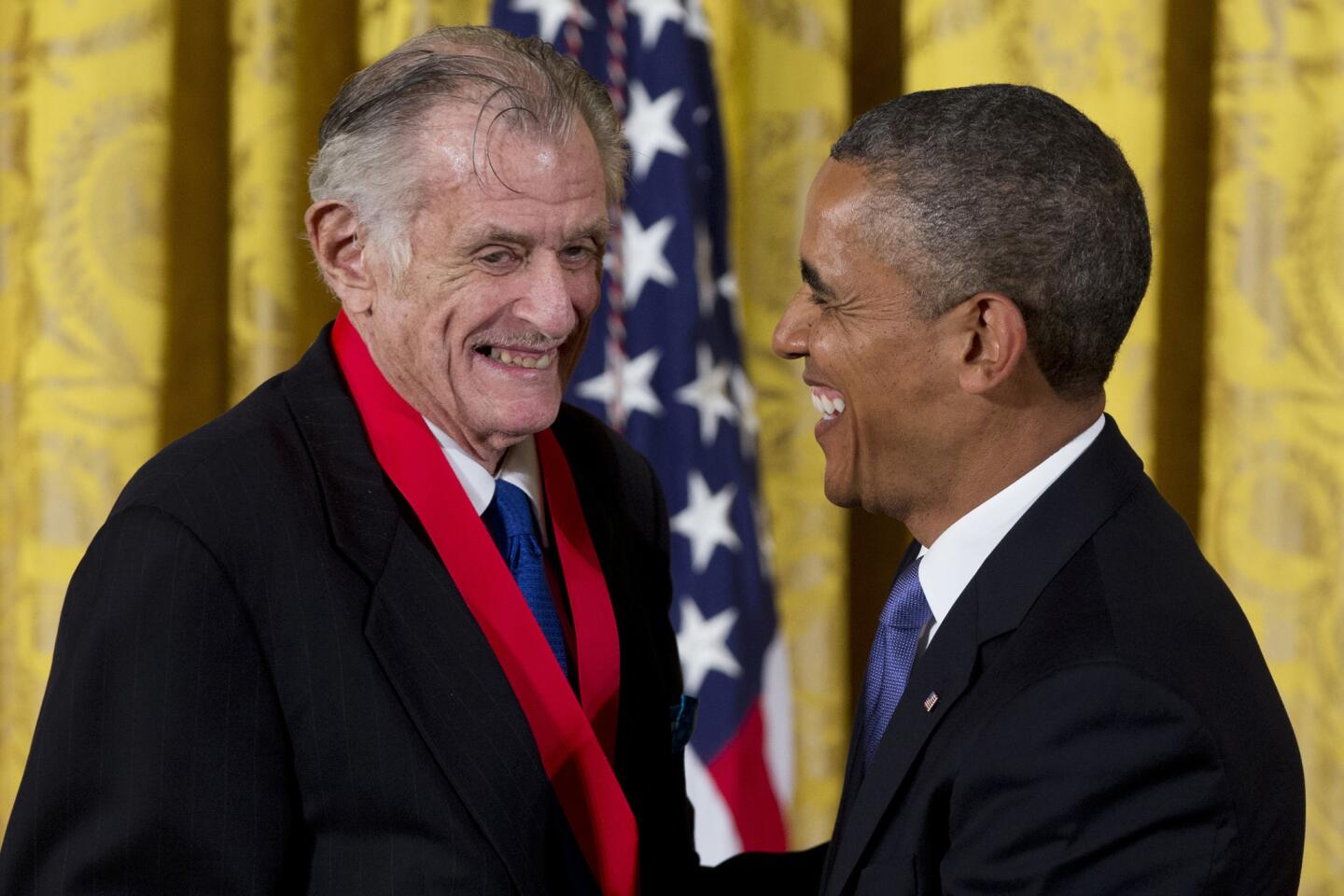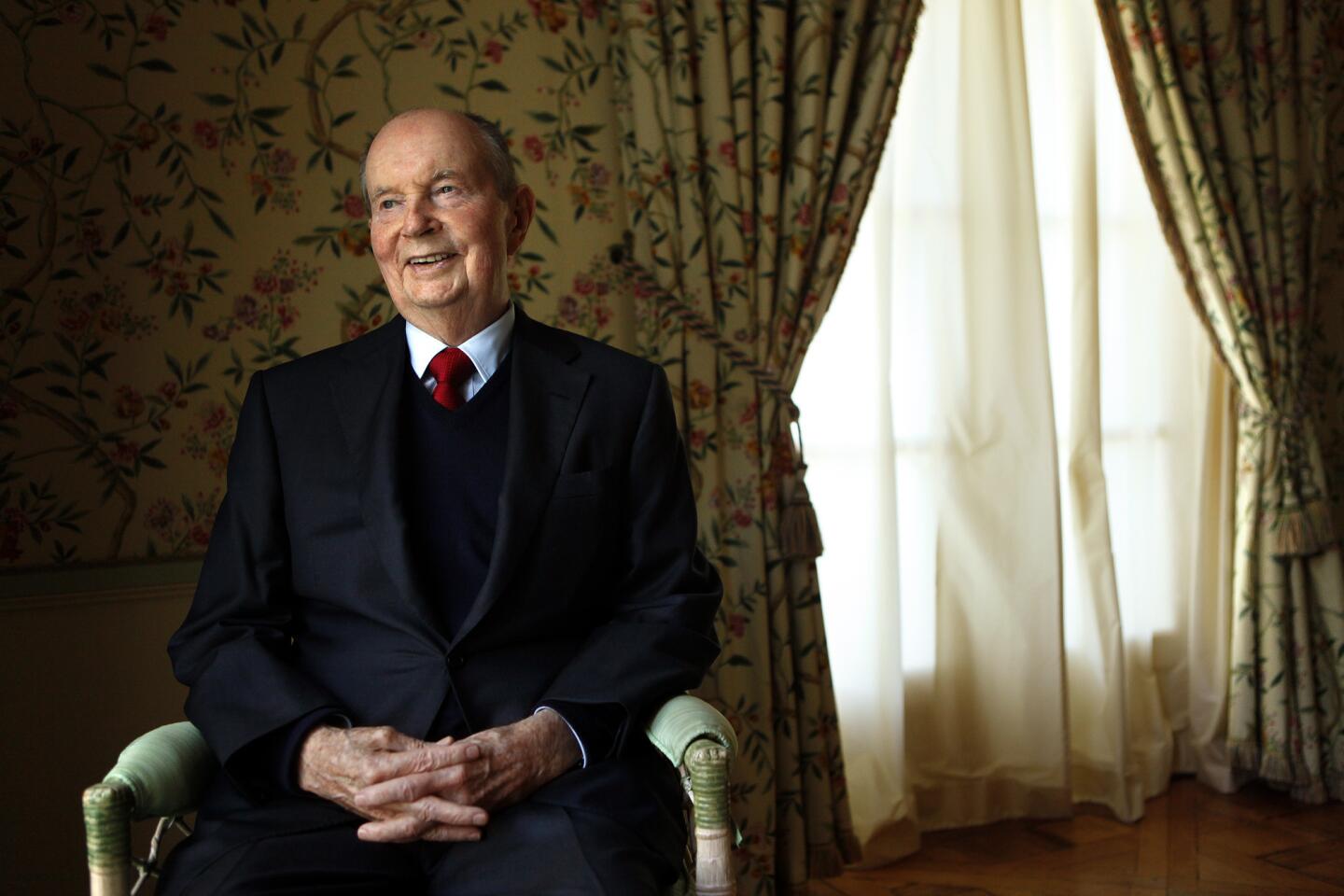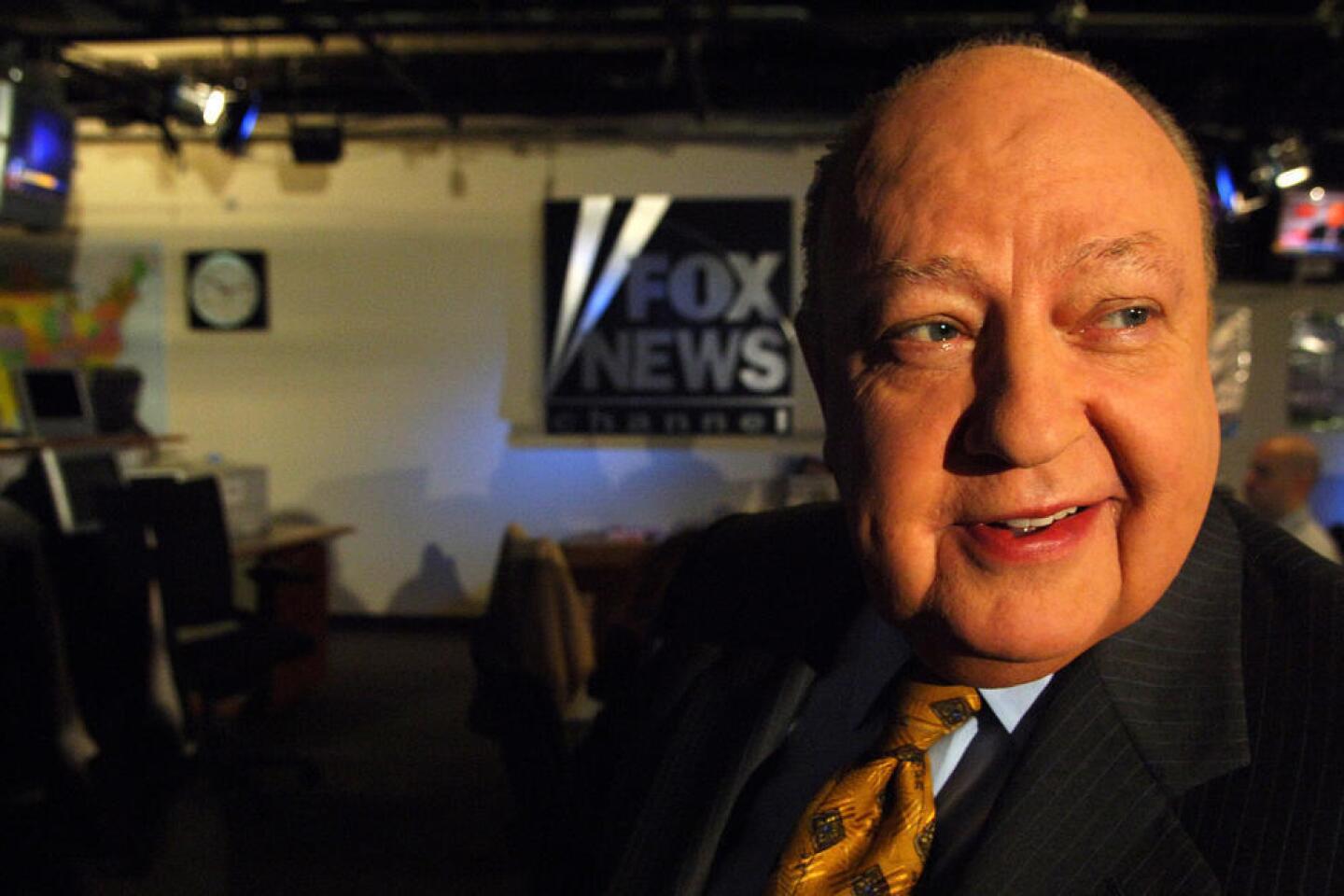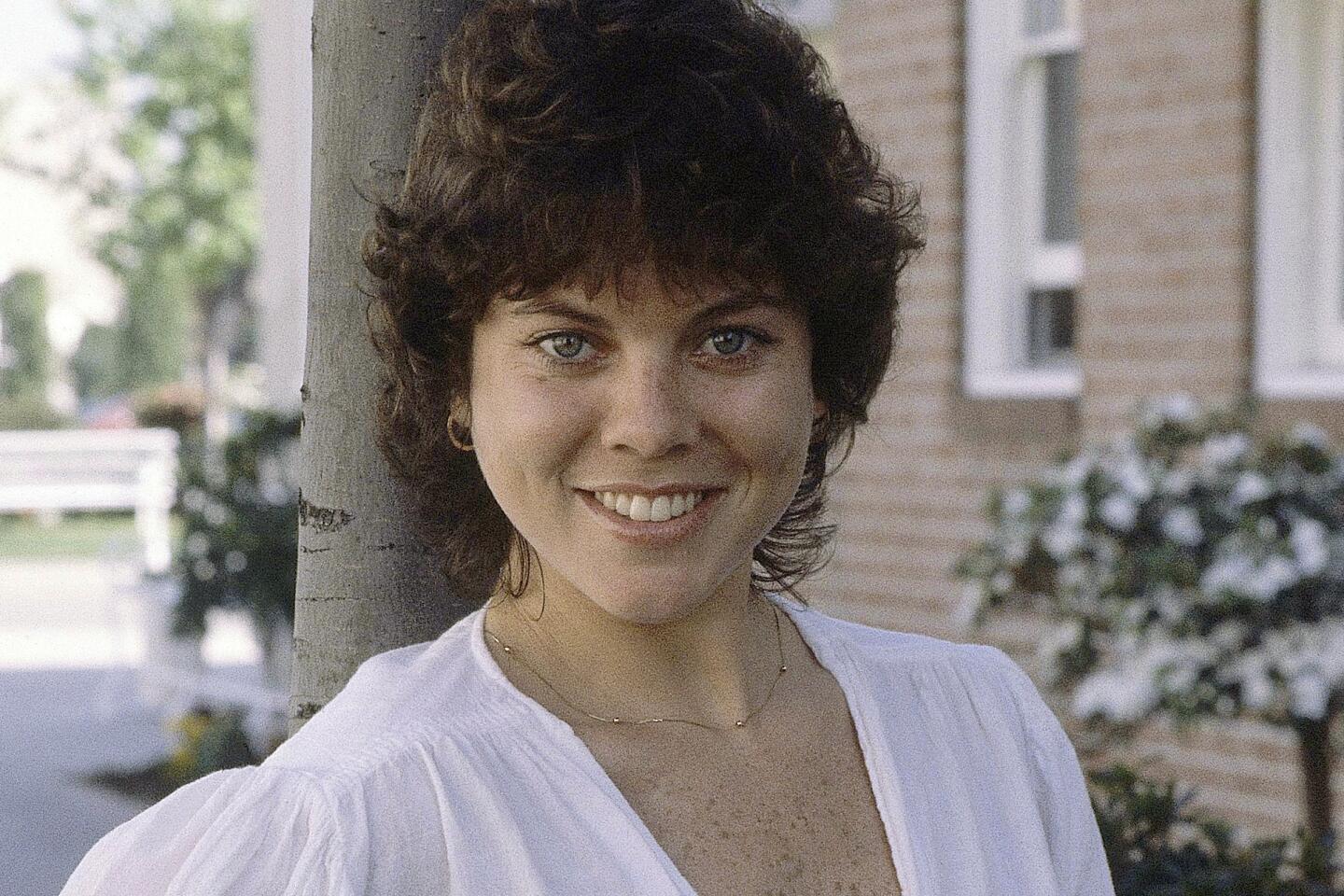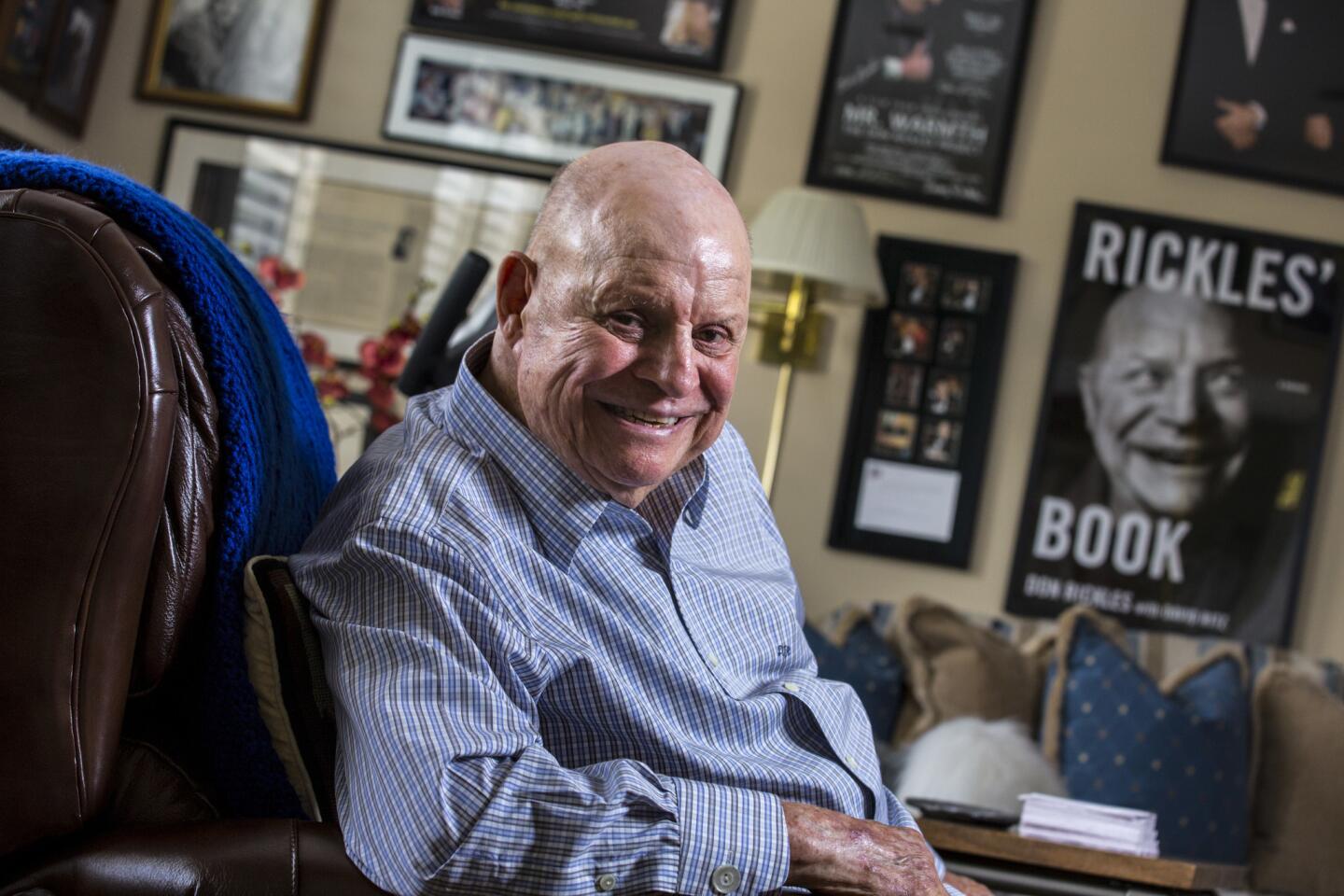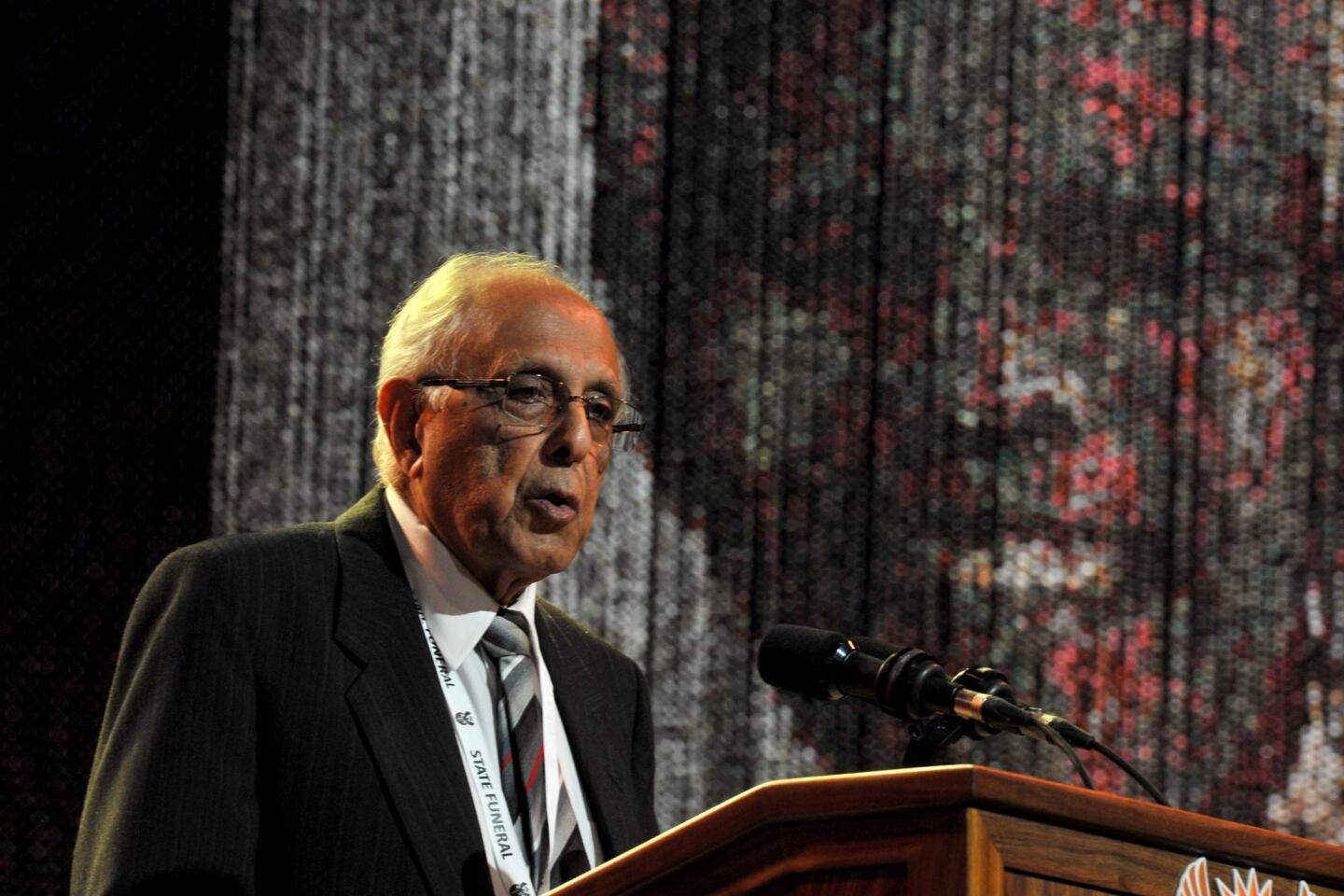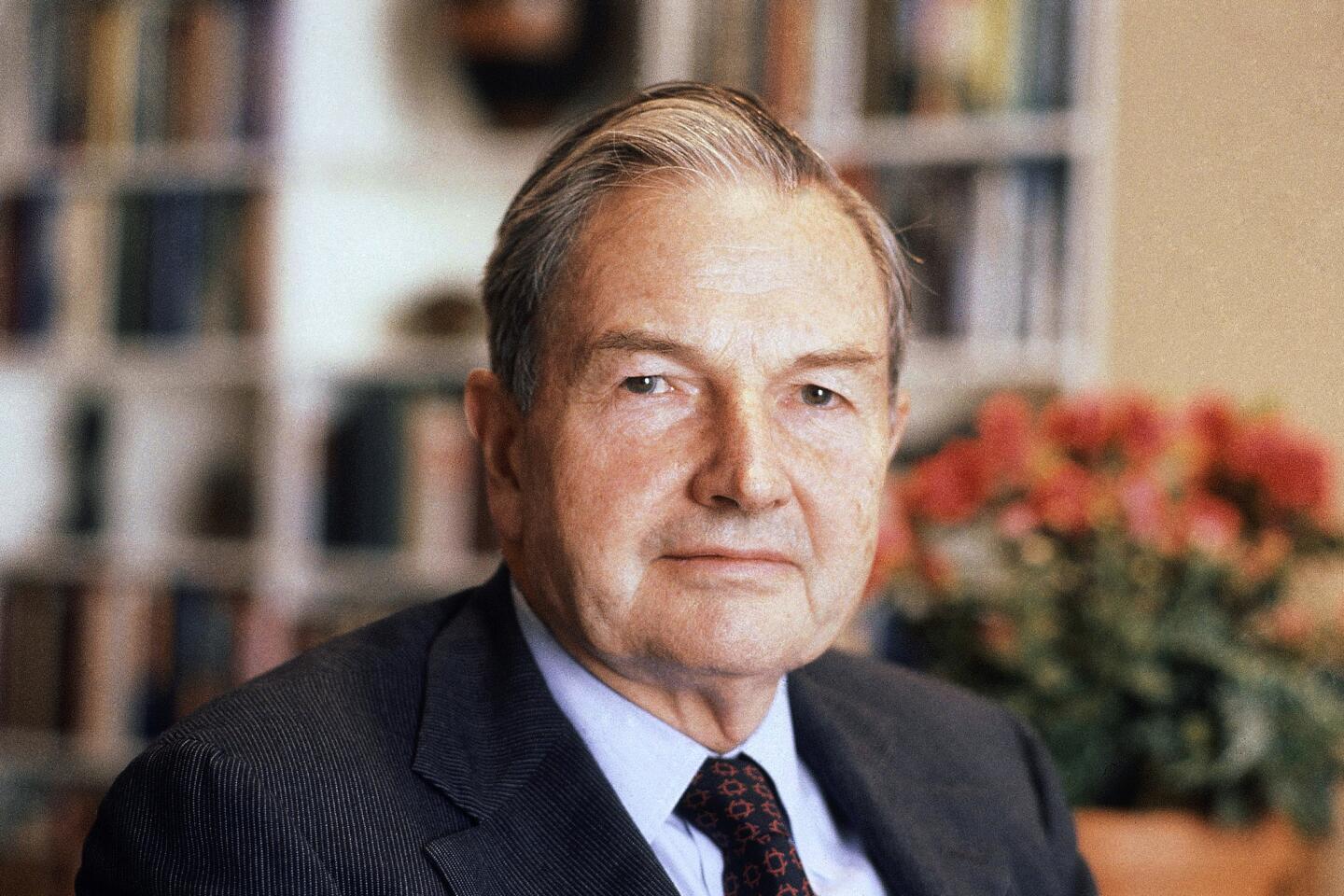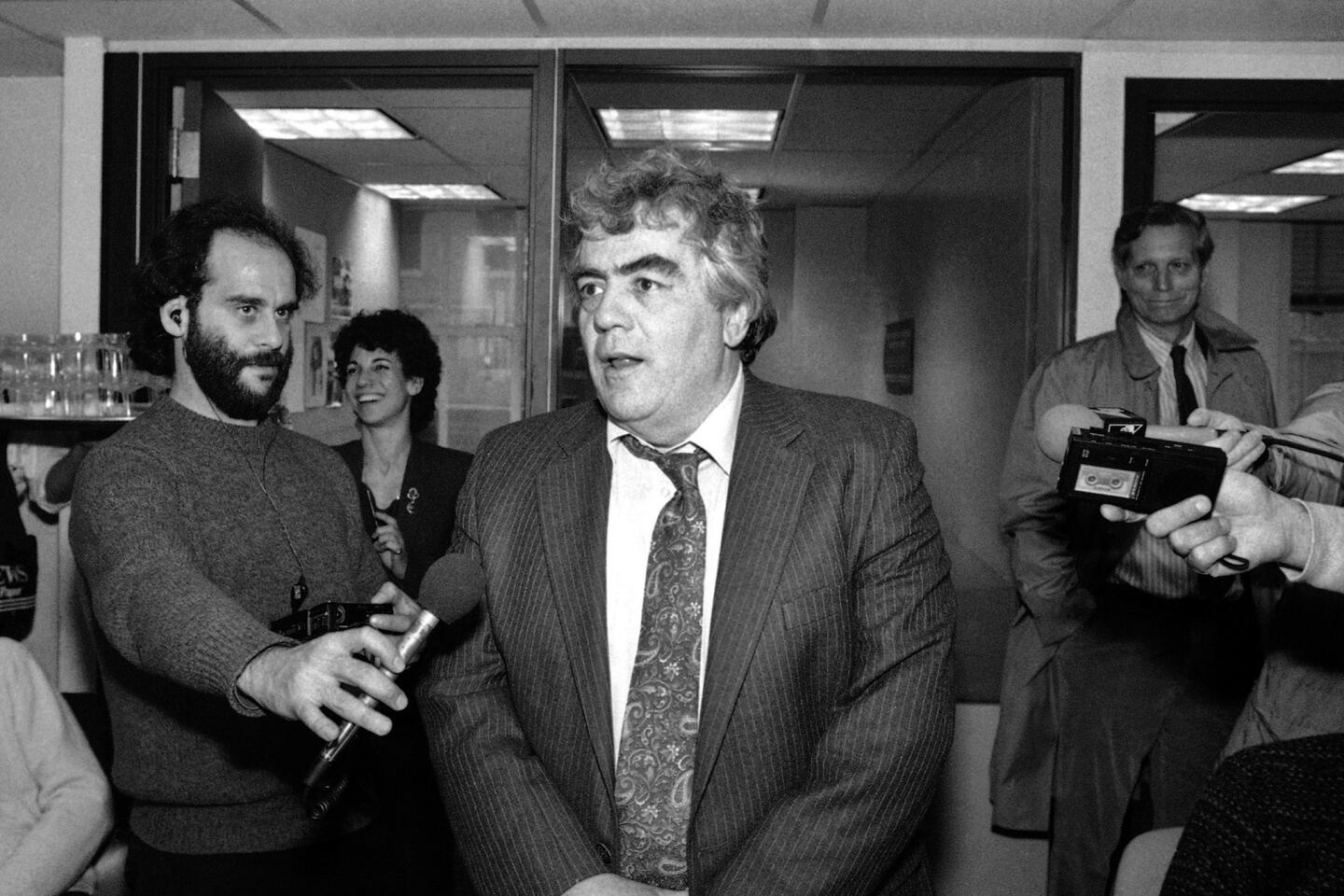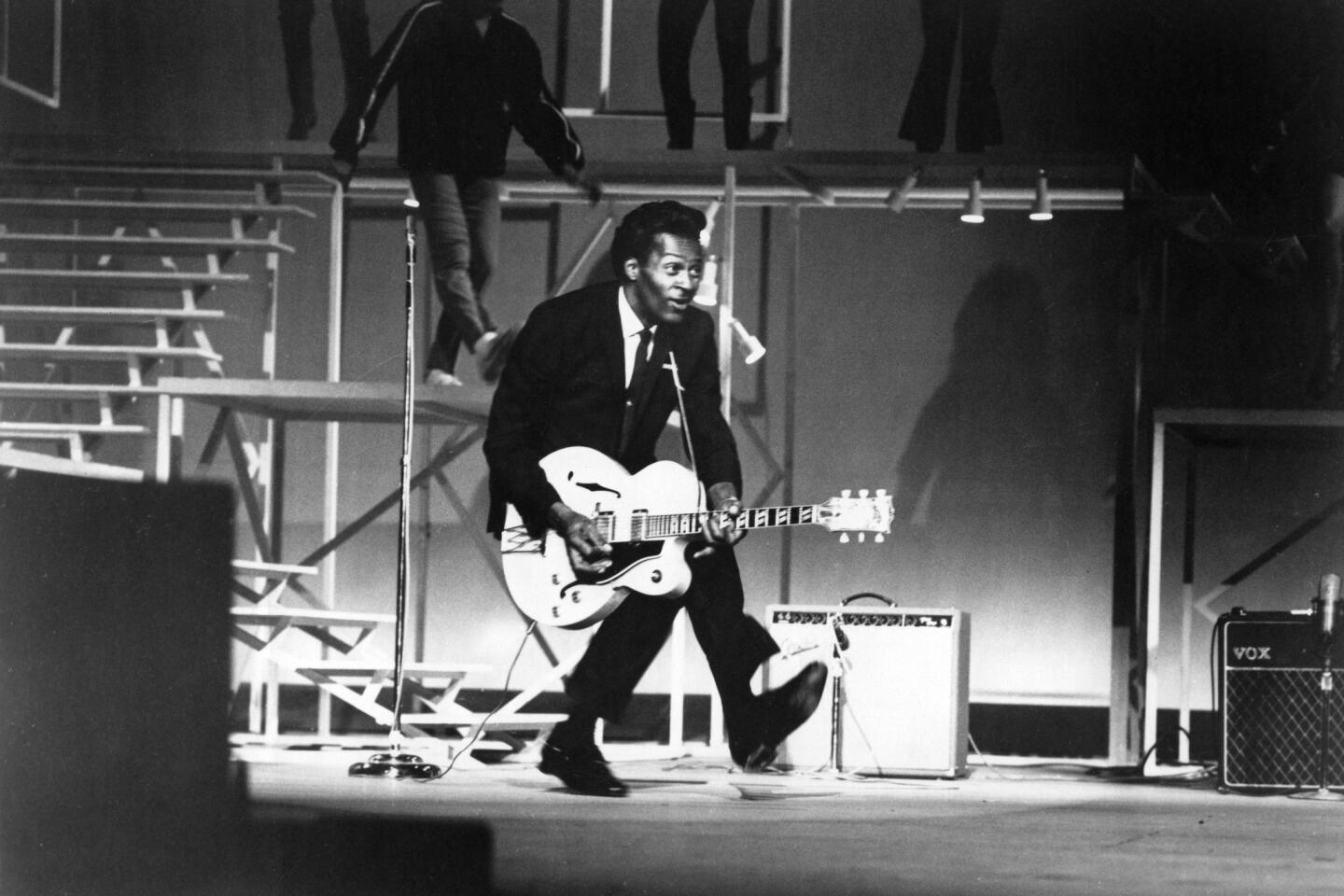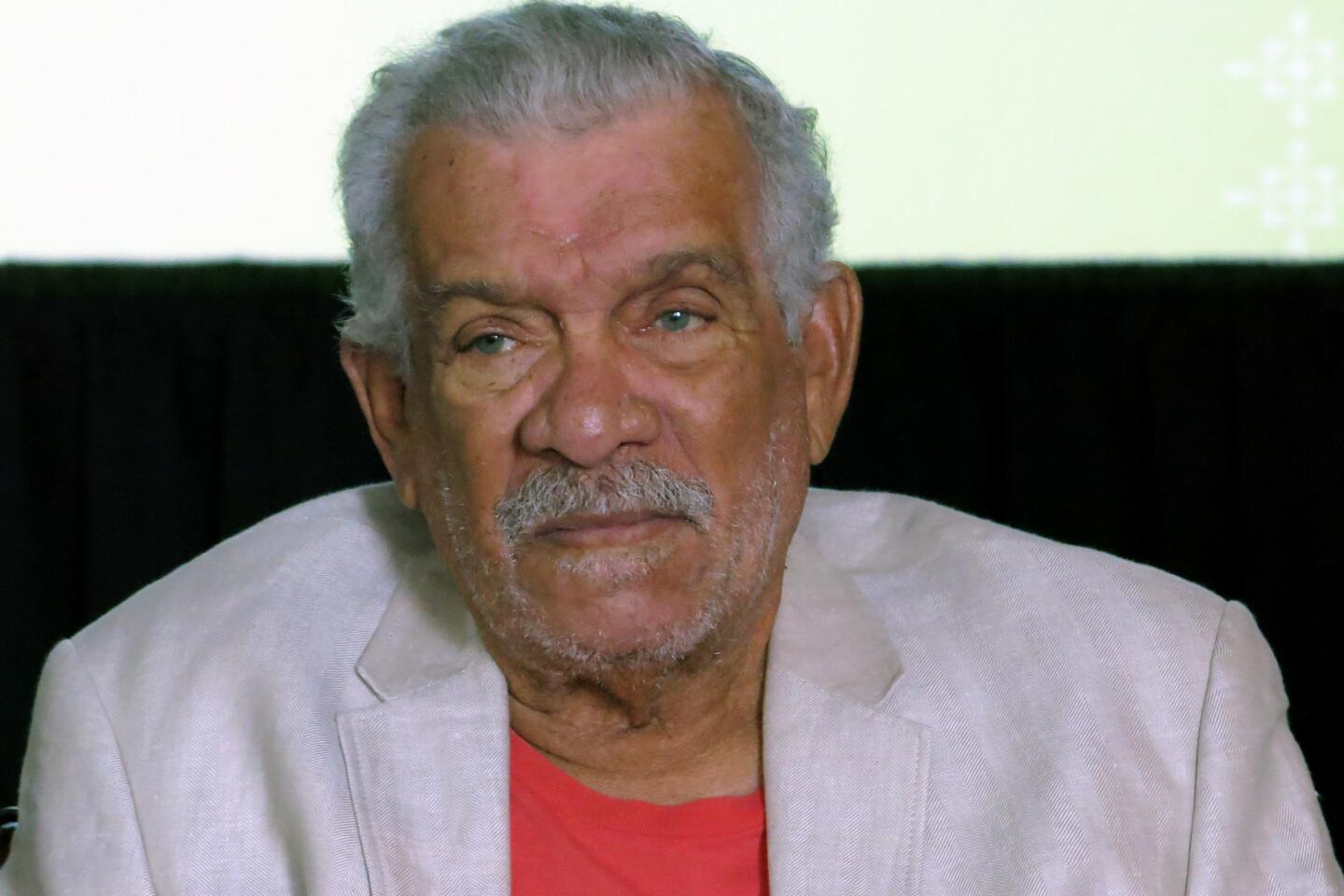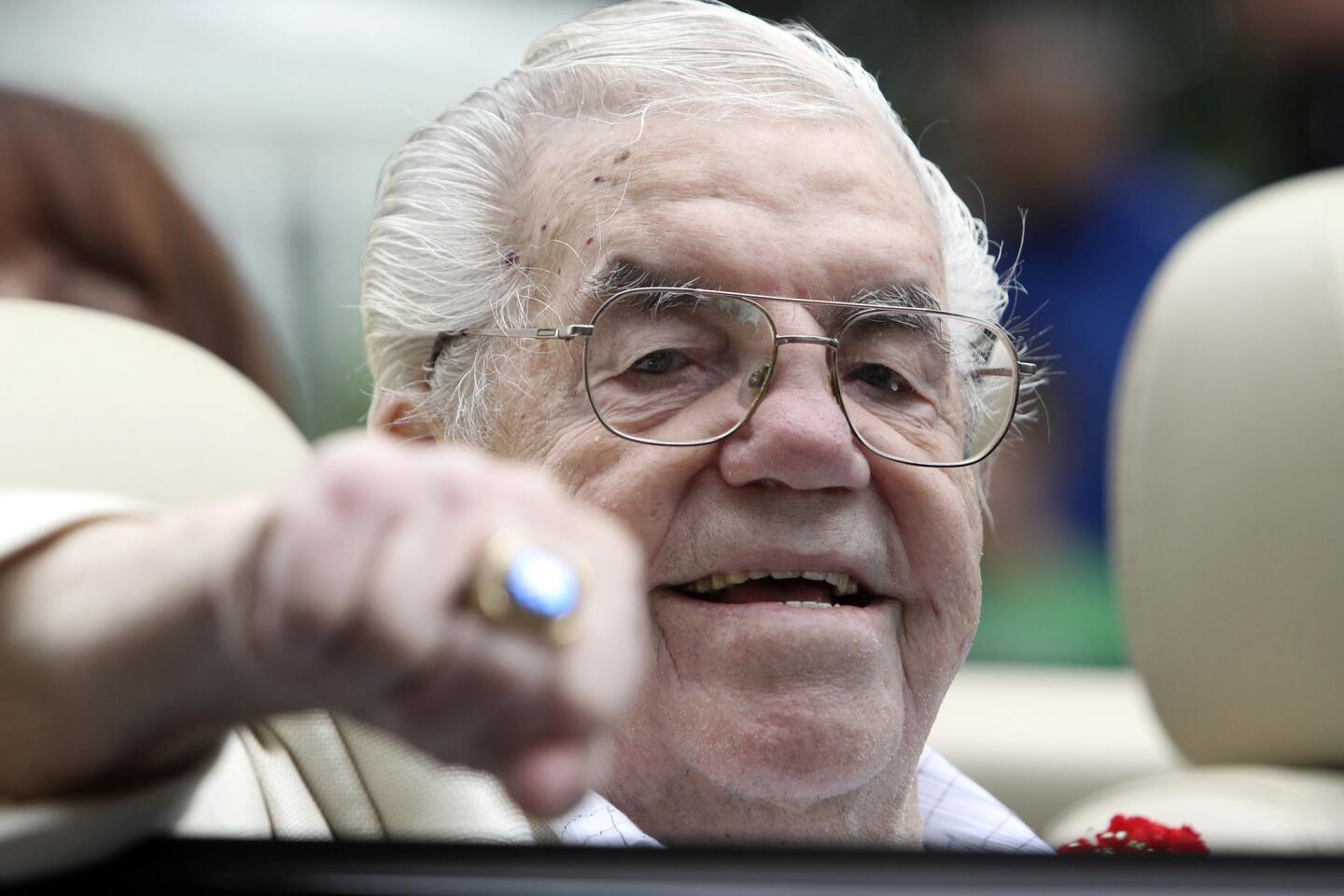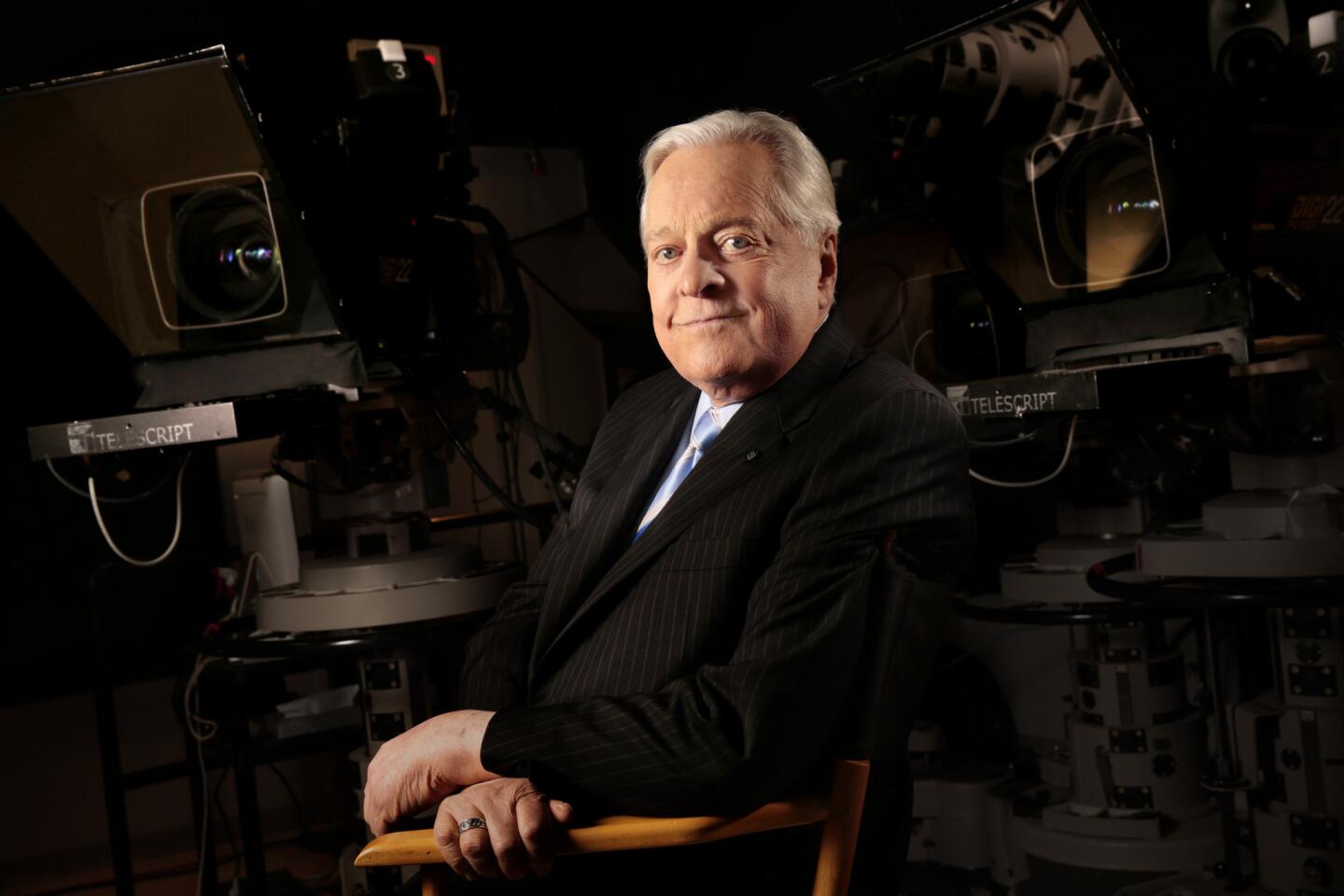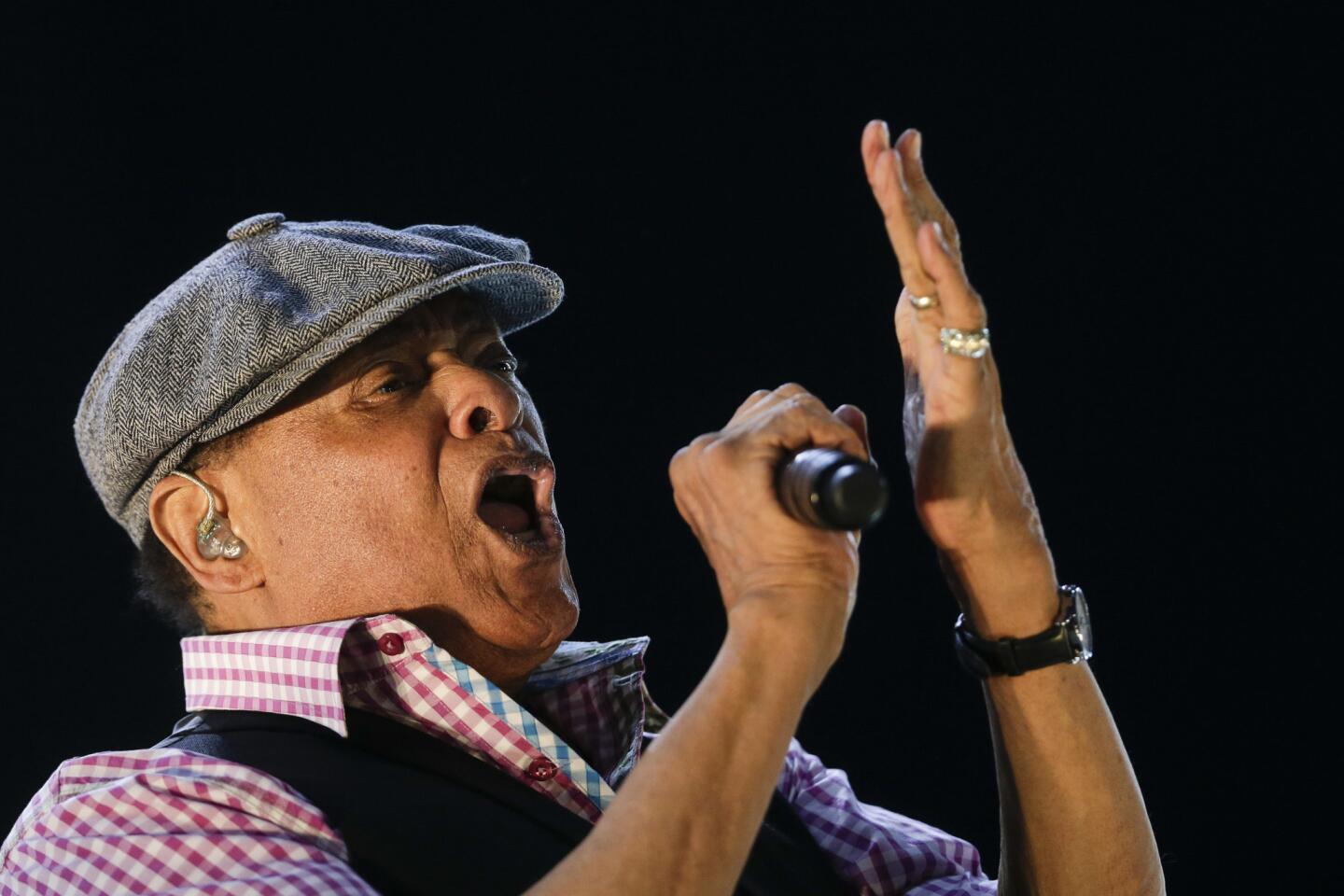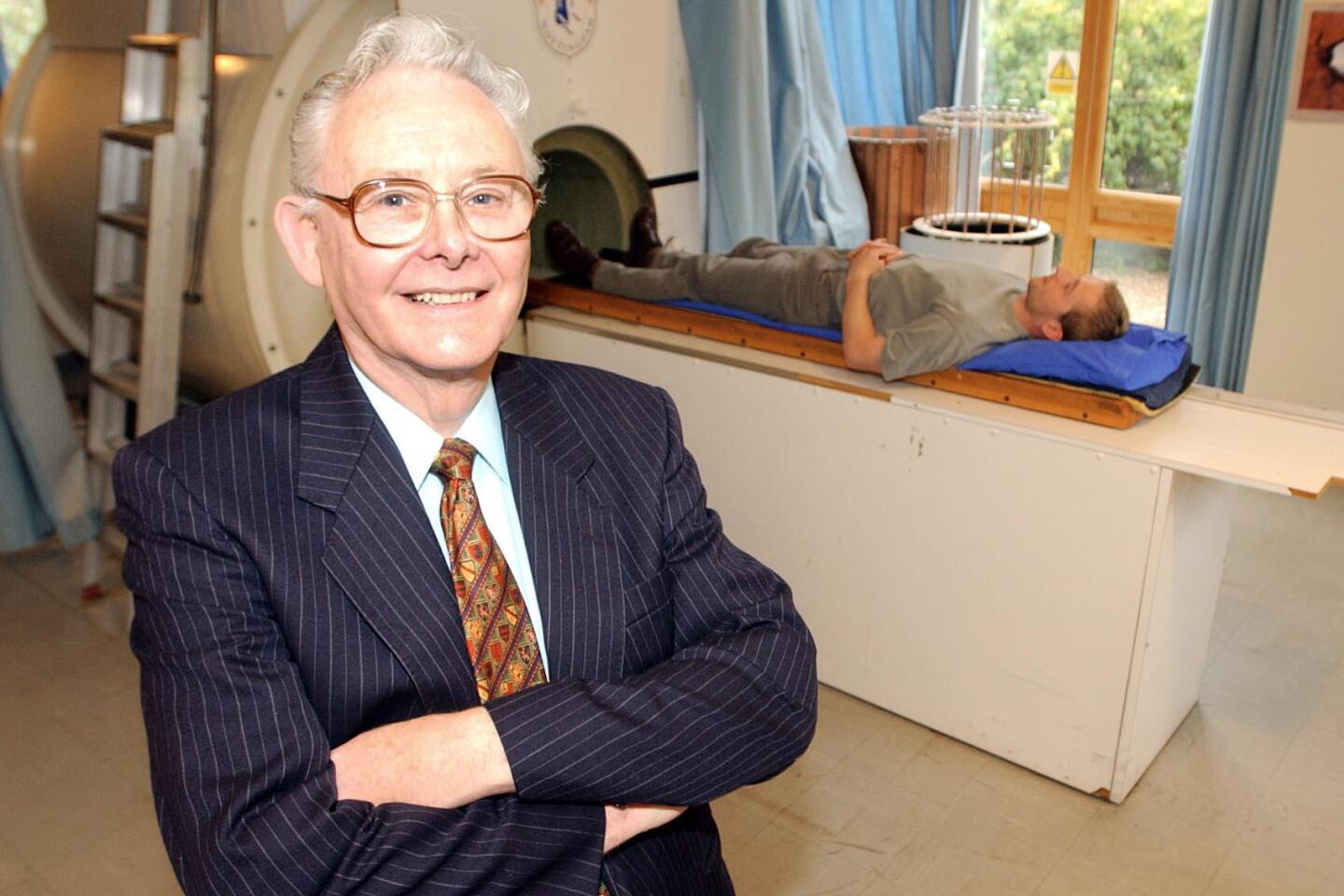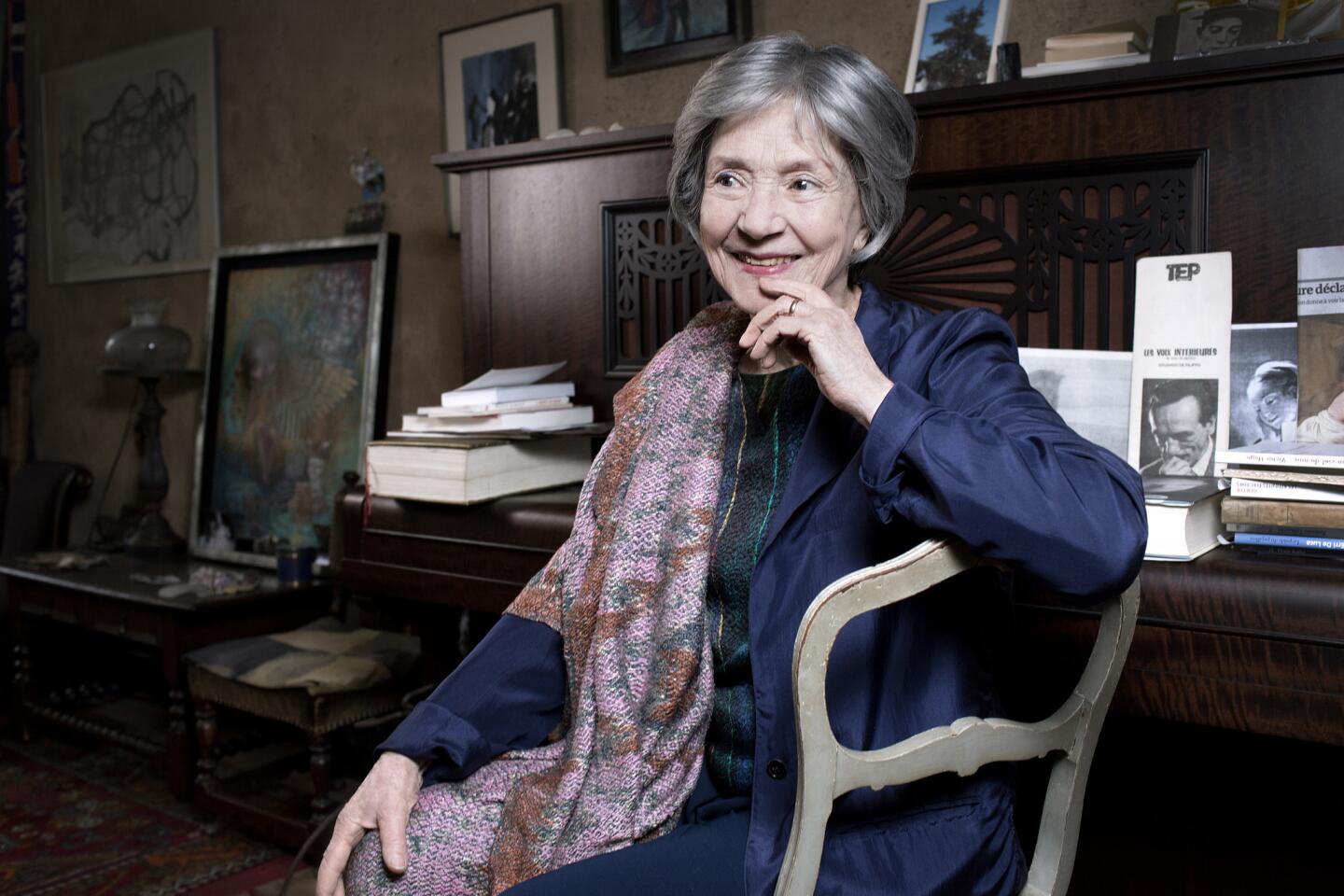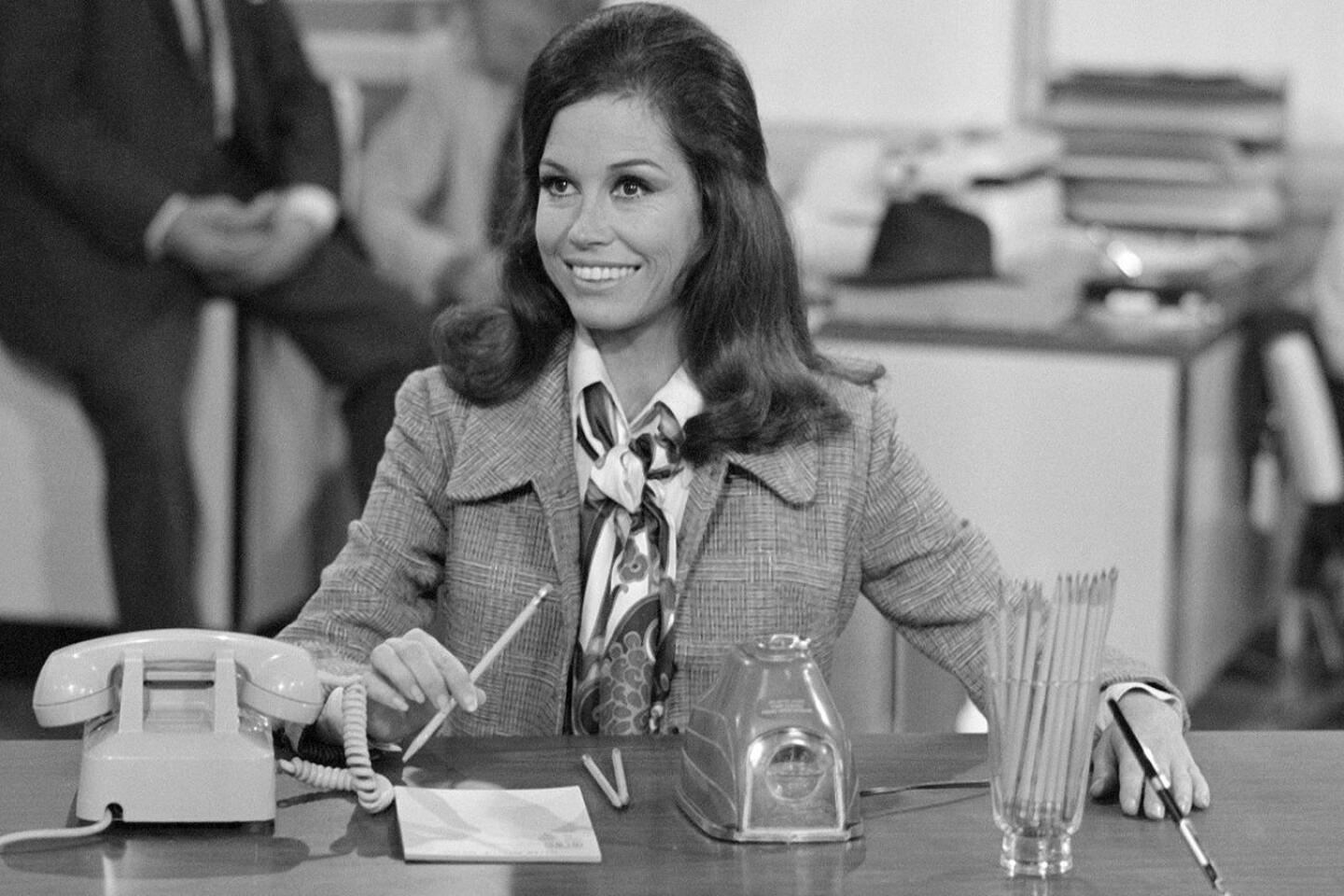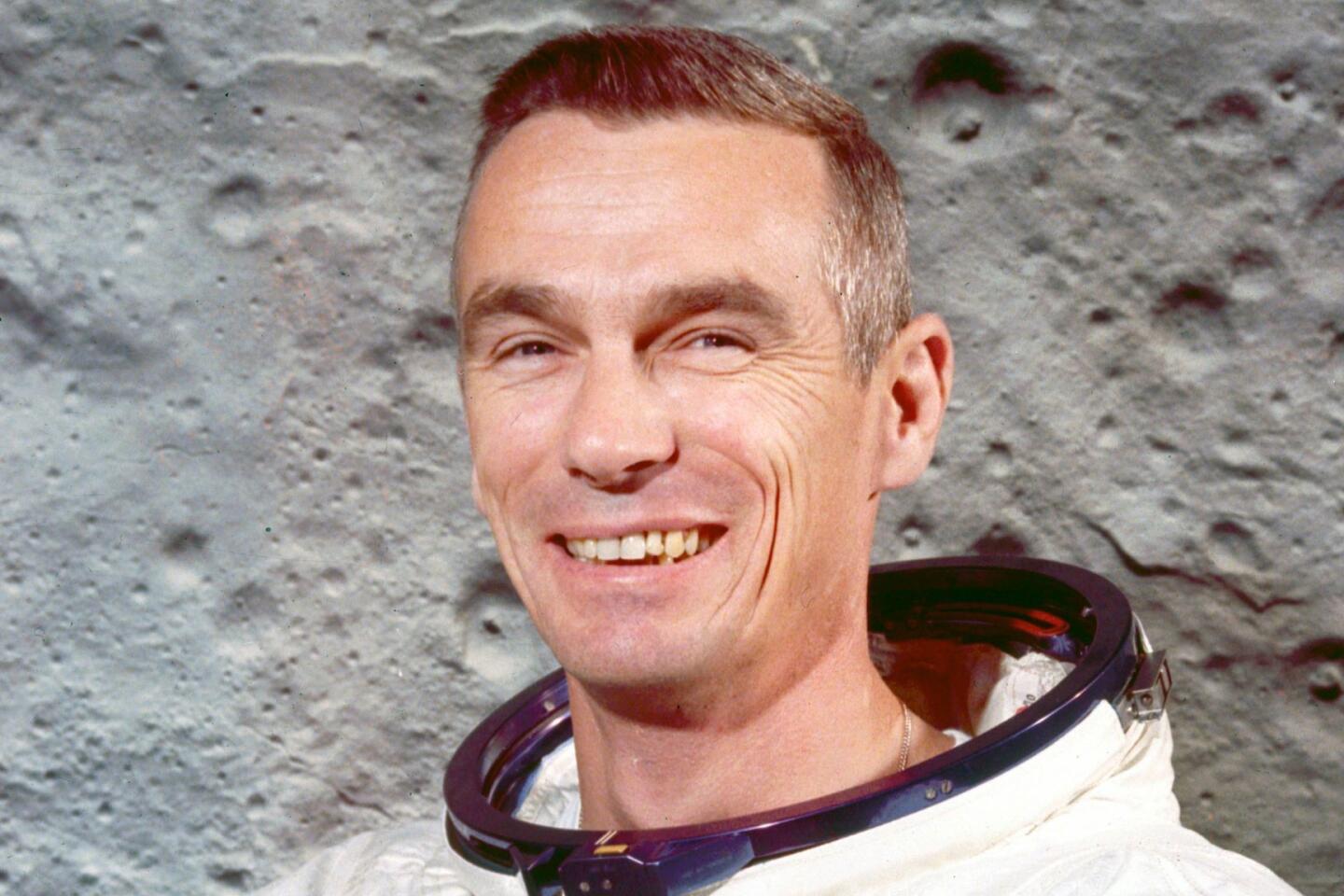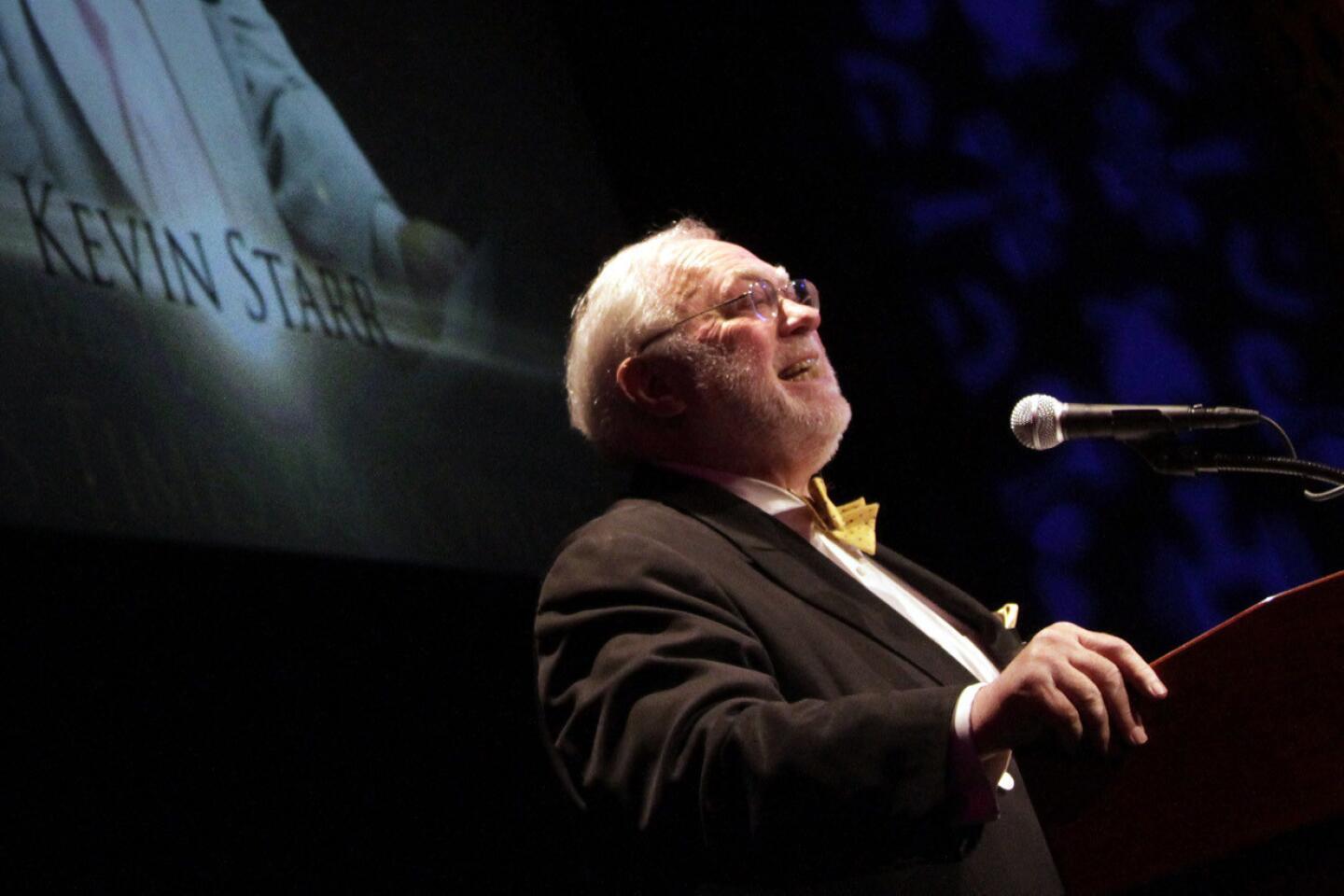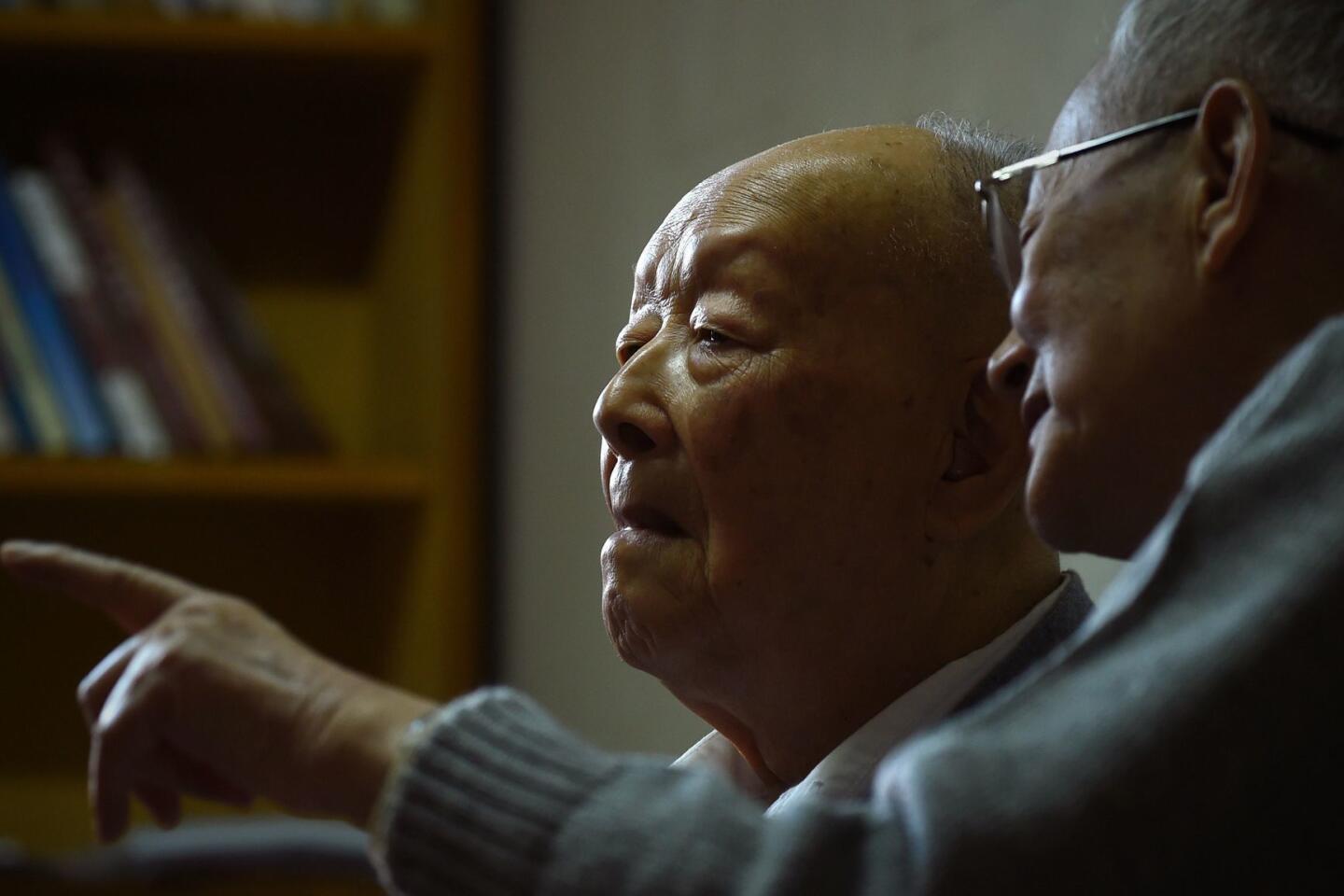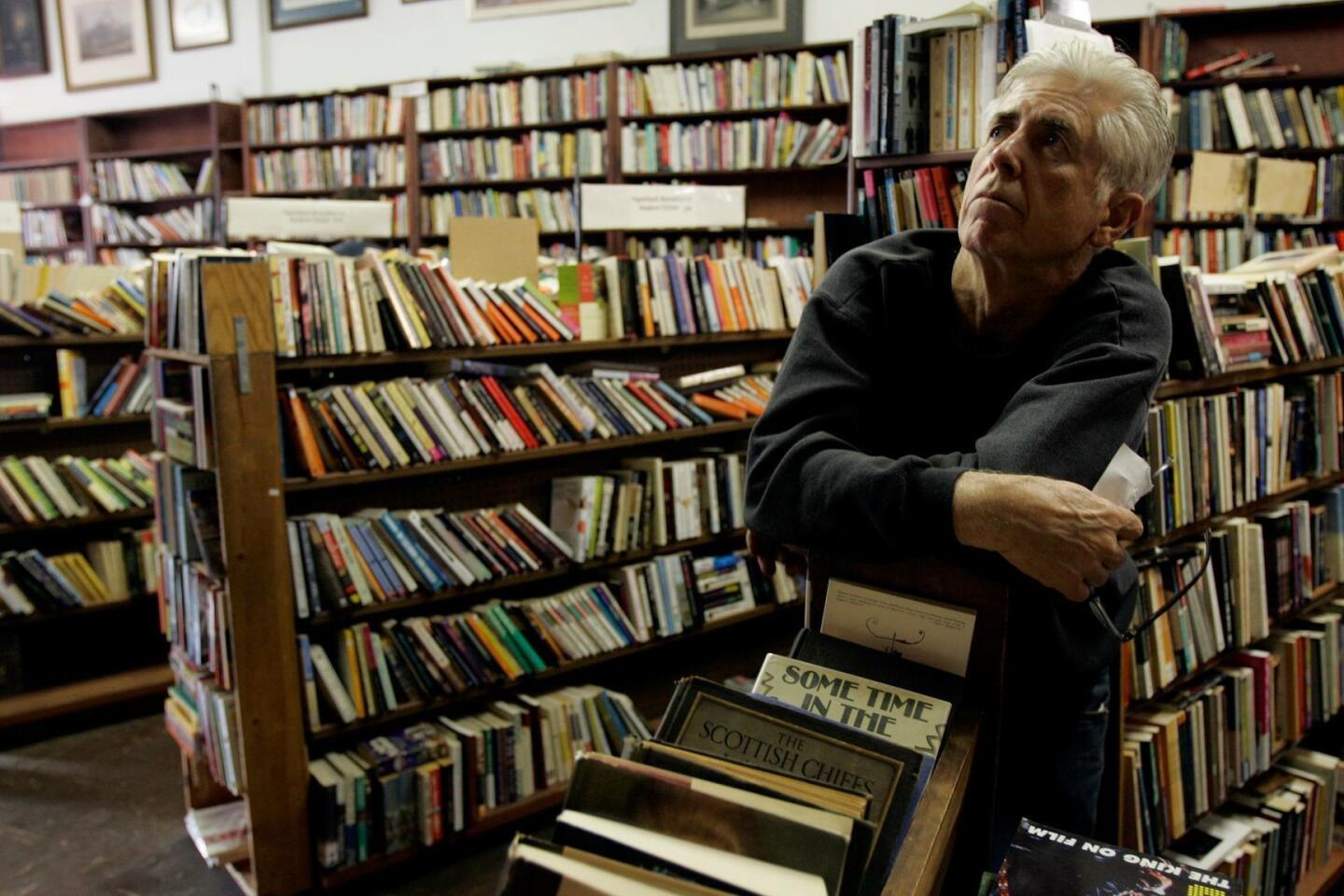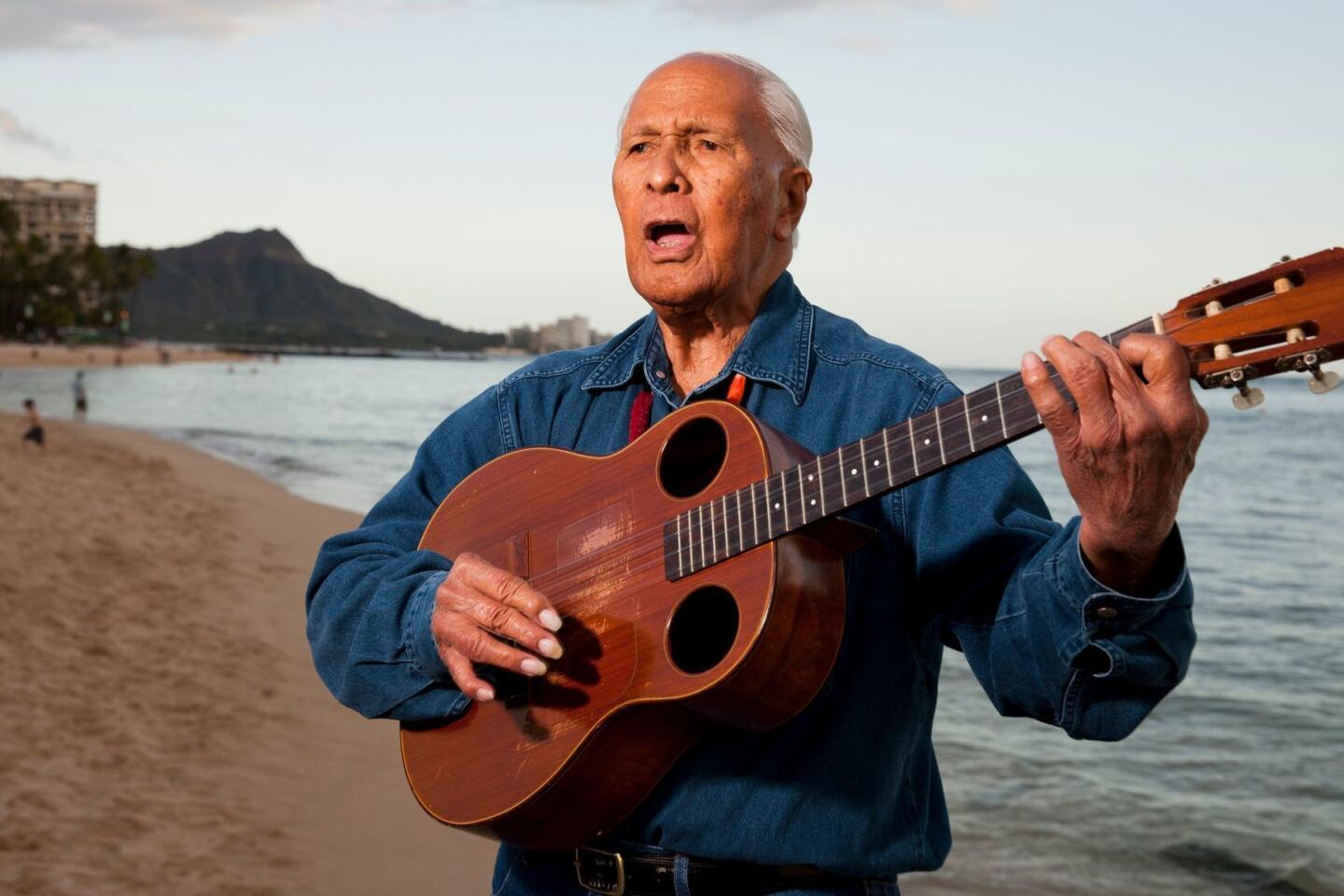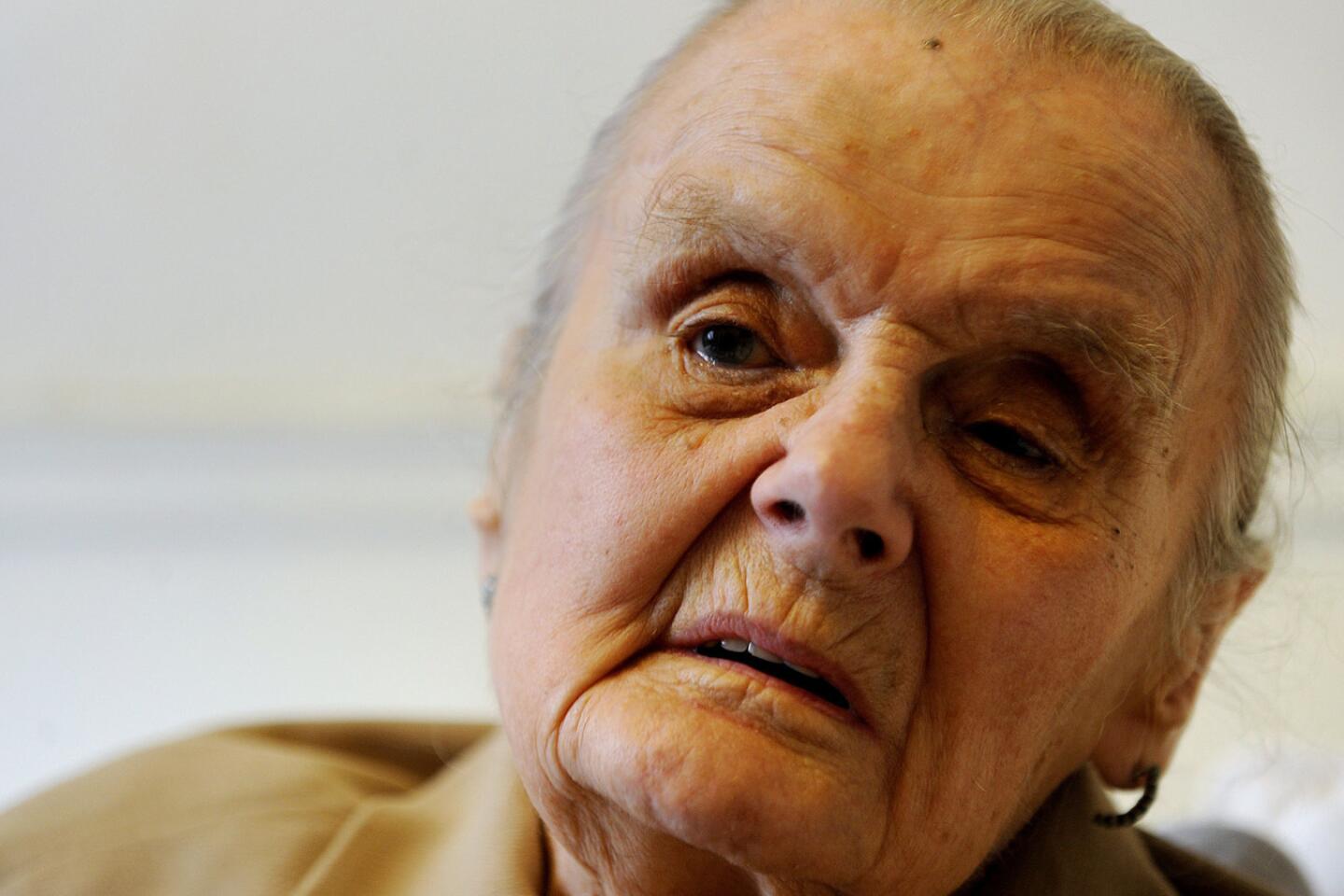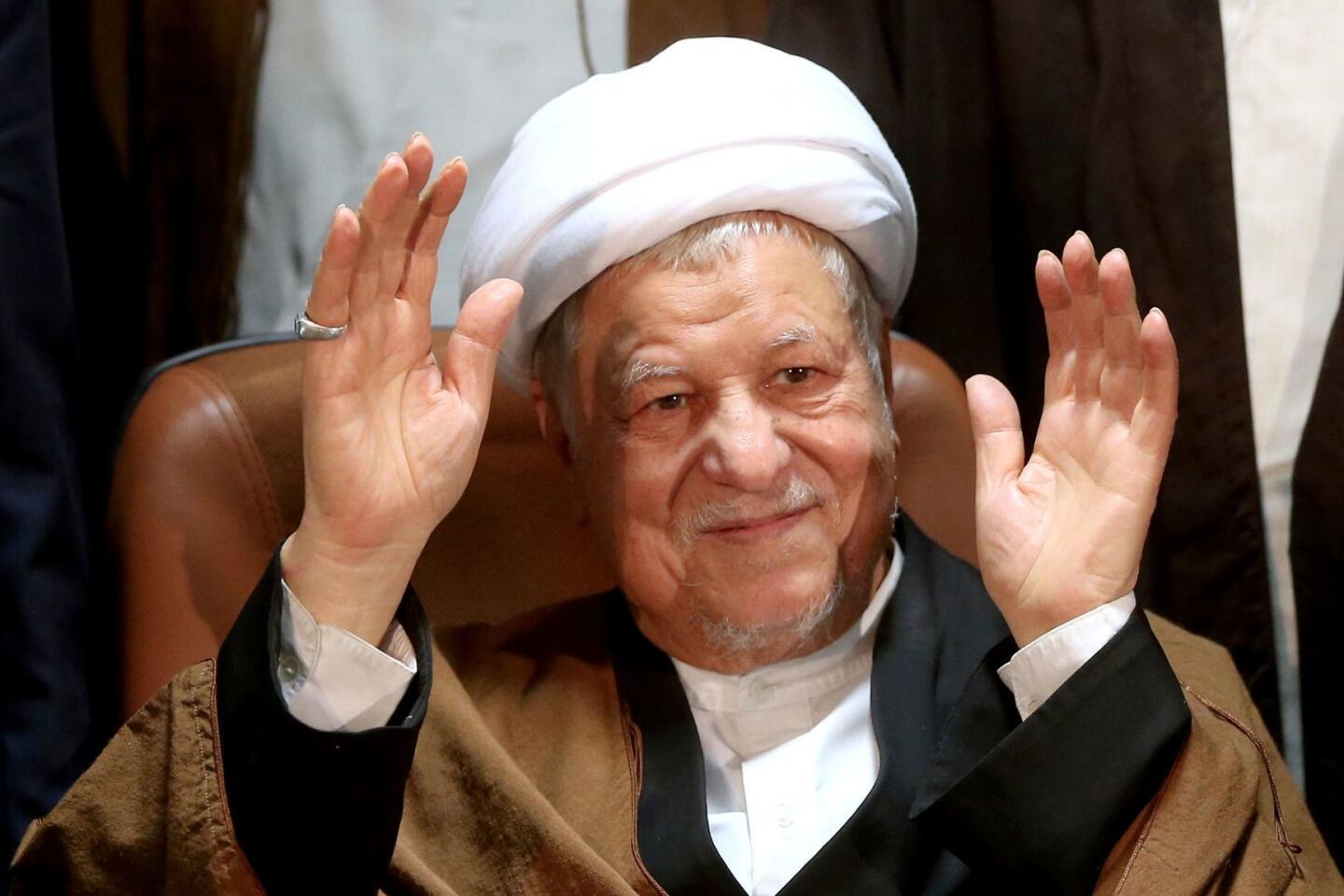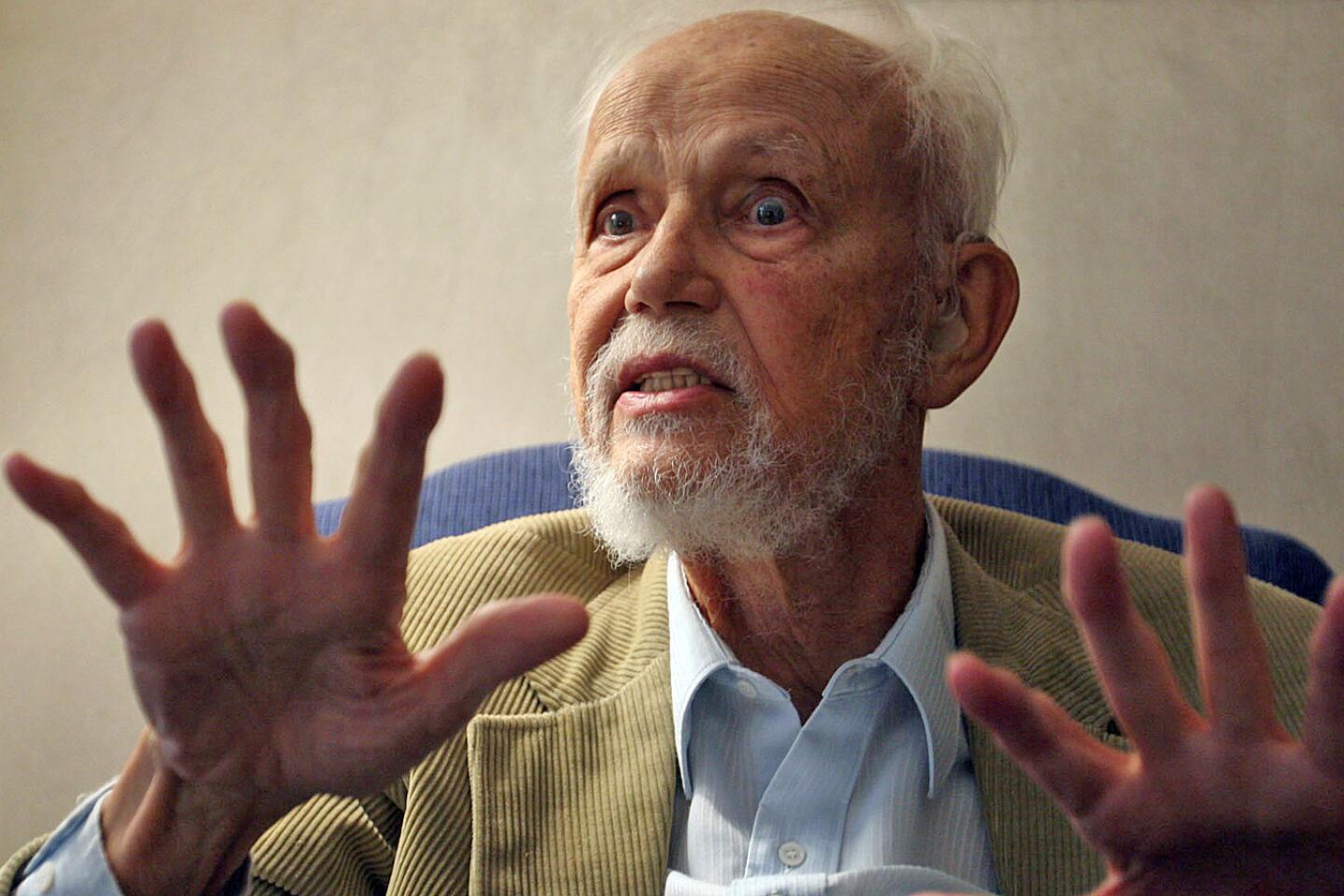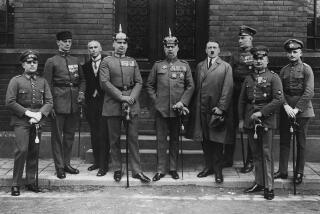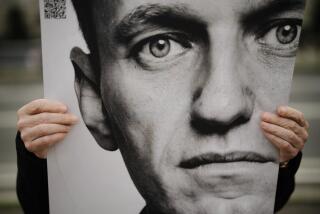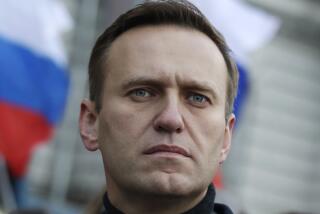Helmut Kohl dies at 87, Germany’s ‘chancellor of unity’ marred by corruption scandal
Helmut Kohl, the long-serving former chancellor whose life in the political limelight spanned the joyous zenith of German reunification and the shattering nadir of a corruption scandal, died Friday at his home in Ludwigshafen, Germany. He was 87.
Kohl’s Christian Democratic Union Party posted on Twitter: “We are in sorrow. #RIP #HelmutKohl.” The German newspaper Bild reported his death.
The “chancellor of unity” and the driving force behind European integration, Kohl suffered a fall from grace with his failed bid for a fifth term in 1998 and later allegations of criminal malfeasance that rendered him, in his own words, “a kind of unperson.”
But as the man who steered Germany through the most tumultuous years of the Cold War and the uplifting triumph of democracy over dictatorship, the massive politician left his mark on Europe over the past few decades, which saw some of the continent’s greatest achievements.
The last German chancellor whose outlook was shaped by personal experience of the Nazi era, Kohl also lived through the pain and sorrow of all 45 years of his nation’s division. But keen-eyed and famously stubborn, Kohl saw the chance to reunite his countrymen in East and West Germany when a reformer named Mikhail S. Gorbachev came to power in 1985 in the Soviet Union.
Few then dared to dream of a Germany free of the ideological and physical divides imposed by the Berlin Wall and the barbed wire, booby-traps and shoot-to-kill orders guiding the Communist world’s sentries.
But as the wily Kohl watched events unfold in the late 1980s in Moscow and Eastern Europe, where the Kremlin no longer threatened armed crackdowns on political dissenters, he made clear that West Germany’s doors were open to those Germans who could get free of their rulers’ clutches.
And as whole villages along Russia’s Volga River, where Catherine the Great had settled Saxon laborers 300 years earlier, emptied out to West Germany, those of other ethnic origins still behind the Iron Curtain began grass-roots revolution that would culminate in 1989’s dramatic overthrow of one-party rule.
In one of recent European history’s greatest ironies, Kohl was at center stage to take his bows along with Gorbachev at the tearful Nov. 9, 1999, celebrations of the Berlin Wall’s fateful breaching a decade earlier. Within two weeks, however, the celebrated German statesman had been linked to a bribery scandal.
Defiant in the face of accusations of criminal wrongdoing, Kohl conceded to investigators that he had personally accepted at least $1 million in illegal donations but refused to identify the benefactors or what they expected in return.
Under threat of contempt charges and even jailing, Kohl retreated into the political background during the tarnished twilight of an illustrious career. Gala celebrations planned for his 70th birthday on April 3, 2000, were abruptly canceled, and one of Europe’s greatest living statesmen spent the occasion alone with his family at the home in Oggersheim he had mortgaged in a quixotic campaign to repay his party, the Christian Democratic Union (CDU), for the fines he had brought upon it.
“When in November, in connection with the 10th anniversary of the fall of the wall, you stand in the middle of great honors and then in a few weeks become a kind of unperson — or, according to some media, even a kind of monster — that is a change of situation that is very difficult to bear,” a dispirited Kohl told a radio interviewer.
A man whose physical girth and gusto came to symbolize the weight and power of Europe’s biggest country, Kohl spent little time at his new home in Berlin after the move of the capital from Bonn in the summer of 1999. After being forced to resign his honorary chairmanship of the CDU in January 2000, he often failed even to show up for sessions of the Bundestag, the lower house of parliament, of which he was a member.
Kohl’s legacy as the father of reunification and his personal conviction that he had done nothing wrong managed to carry him through the disgrace of being left out of the Oct. 3, 2000, celebrations marking a decade of German unity — the latest snub and reminder of the dark side of political life.
After Uwe Barschel, a CDU colleague and governor of Schleswig-Holstein state, took his own life in 1987 after being accused of election dirty tricks, the then-chancellor reflected on the loss as the high price sometimes demanded of public figures.
“We humans have an abyss inside us,” Kohl told fellow conservatives after Barschel’s suicide. “The more power people have, the greater the danger.”
Kohl’s 16-year tenure as chancellor, the longest in Germany’s post-World War II history, also was tainted in the mid-1980s by the notorious “Flick affair,” which reigned as Germany’s most grievous bribery scandal until the more recent slush-fund revelations.
Kohl’s entire political life seemed an undulating series of highs and lows. Even his proudest achievement in reunifying the country was criticized for controversial — some would say renegade — steps taken along the path of reconciliation.
Much to the dismay of many advisers, the late chancellor rammed through an economically dubious currency union in July 1990 that allowed East Germans to trade in their shaky eastmarks on a one-to-one basis for the powerful West German legal tender. The move brought about economic integration virtually overnight but cost tens of billions of dollars a year to underwrite and created an enduring source of resentment with its message that underachievers in the east had to be bailed out at the more productive westerners’ expense.
Analysts also have berated Kohl for grossly underestimating the costs of unification. “There were tremendous illusions created at the beginning. Helmut Kohl told the people this would be a process of two or three years and that it could be accomplished with pocket change,” historian Wolf Jobst Siedler chastised the former chancellor.
But internationally, such criticism was drowned out by a flood of praise for Kohl’s achievements.
Most impressive were his diplomatic strokes in convincing Germany’s neighbors and international partners — including the United States, France and the Soviet Union, all former enemies — that a reunified Germany would not be a threat to world peace but rather an asset.
In a matter of months after the wall fell, Kohl won blessings from then-U.S. President George Bush for unification by assuring him the former East German states would be integrated into the North Atlantic Treaty Organization and transformed from Warsaw Pact adversaries to reliable allies.
France was warier still of newly empowering its eastern neighbor, but Kohl, a friend of the late French President Francois Mitterrand, successfully argued that he wanted to unite not just Germany but all of Europe in peace.
Most important, Kohl won consent for German self-determination from Moscow, which had dominated East Germany for nearly half a century. Gorbachev had plenty of reason to frustrate Kohl when the chancellor arrived in Moscow in February 1990 to plead the cause of German self-determination: About 20 million Russians died in that century at the hands of an aggressive Germany.
Yet Kohl won over the powerful Soviet leader by shedding coat and tie for a sweater, touring Gorbachev’s southern stamping grounds for a firsthand look at hungry peasants, and convinced the Kremlin leader that his people would be richly rewarded for helping Germans end their painful era of divide.
As his vision of unification unfolded, Kohl promised anxious East Germans that they would soon see “blossoming landscapes” after the rusted wreckage of their planned economy had withered away. Those predictions would come back to haunt him, however, especially by the end of his fourth term in office, when unemployment in the east was still as high as 20% and westerners had long grown tired of reunification’s drain on national resources.
Dogged by discontent on both sides of the vanished divide, Kohl’s CDU lost the September 1998 election when a charismatic figure from the rival Social Democrats, Gerhard Schroeder, convinced voters that they needed to join him in “a new middle.” Schroeder’s leftists allied with the environmentalist Greens to end Kohl’s reign as the “eternal chancellor” and managed to push through vital tax reforms and reduce unemployment, further eroding Kohl’s reputation as the country’s salvation.
Eastern Germany is undeniably more vibrant than before unification. Unemployable older citizens are, for the most part, entitled to the generous benefits of the western German social-welfare system. And the younger, more entrepreneurial easterners have unlimited freedom to test their skills in a market economy.
Kohl had to watch from the remove of the political opposition as the second of his two great dreams came to fruition — the unifying of Europe into a single trading zone with a shared currency, the euro.
As a German who had spent his adolescence amid the bombs and crater-scarred landscapes of World War II, Kohl saw European unification as an essential tool for preventing future wars on the continent. His hometown, Ludwigshafen, lies upon a strategically important stretch of the Rhine.
Kohl’s father had fought as a draftee on the Western Front in World War I; the former chancellor’s only brother was drafted into service and was killed in World War II.
The elder Kohl had taken son Helmut around to various European battlefields and cemeteries, lecturing him on what he saw as the younger generation’s obligation to work for peace.
“If there is another war in your time, your generation will be breaking its contract with all those who died in two world wars,” his father told Kohl.
Those words, combined with the memory that 75% of his hometown had been flattened by Allied bombing raids, made a lifelong impression on Kohl. Although his formative years were spent in a Germany run by Adolf Hitler and embarked on nationalist calamity that would culminate with the horrors of the Holocaust, Kohl emerged as a young man who saw broader European interests as indivisible from the interests of Germany.
“Germany is our fatherland; Europe is our future,” he used to say in his speeches.
Kohl managed during his years as chancellor to make Germany a more reliable and proven team player in European security operations. After five decades of constitutionally imposed restraints on how and where the modern German army could be deployed, Kohl spearheaded revisions to allow Bundeswehr soldiers to take part in foreign peacekeeping operations and fulfill a more prominent role as a member of NATO.
With Iraq’s invasion of Kuwait in 1990 and the armed international effort to punish Iraqi President Saddam Hussein, Germany came under heavy criticism for writing checks to finance the Persian Gulf War effort but keeping uniformed young Germans well out of harm’s way. The United States and Britain, in particular, spoke of Kohl’s Germany as a mature country with a responsibility to help keep the international peace.
Kohl was persuaded by these arguments, and, little by little, he found new ways to ease the German army back onto the battlefield — but always as a supportive partner in the cause of peace. After the pacifist constitutional language was reinterpreted and broadened, Kohl’s government sent medics, logistics experts, pilots and others to the NATO peacekeeping effort in the Balkans.
I have made a very good living, for more than 30 years, by being underestimated.
— Helmut Kohl
Helmut Kohl was born April 3, 1930, in the working-class Ludwigshafen, in southwestern Germany. His father was a minor civil servant whom Kohl once remembered as “Catholic but liberal at the same time.” His mother was a teacher and shared her husband’s faith.
Ludwigshafen’s economy was, and still is, dominated by a giant BASF chemical works, and on its tidy streets Kohl grew up amid well-entrenched beliefs in the promise of hard work and the virtue of modest living.
By the time he was 6, the Nazis had goose-stepped their way into his hometown, and when the war finally began, the BASF chemical plant — which made poison gas at the time — became a prime target for Allied bombing. Eventually, the bombers leveled the town. By age 13, Helmut was spending his nights helping to rescue people from burning buildings and sometimes digging corpses out of the rubble.
At the end of the war, he worked for a time as a farmhand, then completed high school and went on to study history, law and governmental science at the universities of Frankfurt and Heidelberg. Amid the poverty of postwar Frankfurt, he met the woman he would marry — Hannelore Renner of Leipzig — at a dance sponsored by Quaker relief workers.
After completing his doctoral degree, Kohl held various jobs with a foundry, a private academic institution and a chemical-industry trade group.
He became active in conservative politics soon after V-E Day in 1945, co-founding the youth chapter of the CDU in his hometown and joining the adult chapter in 1947.
He rose steadily through the ranks of the party and entered the state legislature in 1959. He was elected governor of Rhineland-Palatinate state in 1969 and became the opposition leader in the Bundestag in 1976.
In 1982, Kohl became chancellor when the governing coalition of his predecessor, Social Democratic Chancellor Helmut Schmidt, broke apart. Kohl mounted a no-confidence vote in parliament, won it and formed a governing coalition of his own. He held national elections the next year, and his CDU won, giving him his first term as chancellor.
Kohl was regularly condescended to by those who considered him provincial and unsophisticated. There were jokes about his huge appetite and weight, his annual diets, his blunders and his perceived lack of social graces. Far from being hurt by the put-downs, Kohl seemed to enjoy them and to believe that in politics, they could give him a competitive edge.
“I have made a very good living, for more than 30 years, by being underestimated,” he said while still in office.
Kohl’s humble character allowed him to hold informal — and productive — talks with then-Russian President Boris N. Yeltsin in a sauna, and to fete international dignitaries by bringing them to his house and offering them his favorite dish: saumagen, a baloney-like concoction of meat and vegetables boiled in a pig’s stomach.
He often summed up his political philosophy with a reference to German cooking: “Short speeches, long sausages,” he would say in deprecating those inclined to run on too long.
A classic example of one who fails to heed his own advice, Kohl’s defeat in 1998 and his tumble in the public’s esteem were seen by many as the results of seeking to hold power too long and suffering delusions of being above the law.
Still, many Germans took him to be the very soul of respected, old-fashioned values: persistence, hard work, simplicity and good will. It was these traits, and the humility and pacifism he was born to, that helped him to usher Germany back into the family of nations.
Hannelore Kohl preceded her husband in death in 2001, when she committed suicide to escape the pain of a rare illness that made her allergic to sunlight. Kohl is survived by their two sons, Walter and Peter.
The Associated Press contributed to this report.
ALSO
Roger Smith, ’77 Sunset Strip’ detective and husband of Ann-Margret, dies at 84
Harry Zavos, Glendale political activist and Loyola Law professor emeritus, dies at 84
Zbigniew Brzezinski, President Carter’s national security advisor, dies
More to Read
Start your day right
Sign up for Essential California for the L.A. Times biggest news, features and recommendations in your inbox six days a week.
You may occasionally receive promotional content from the Los Angeles Times.
